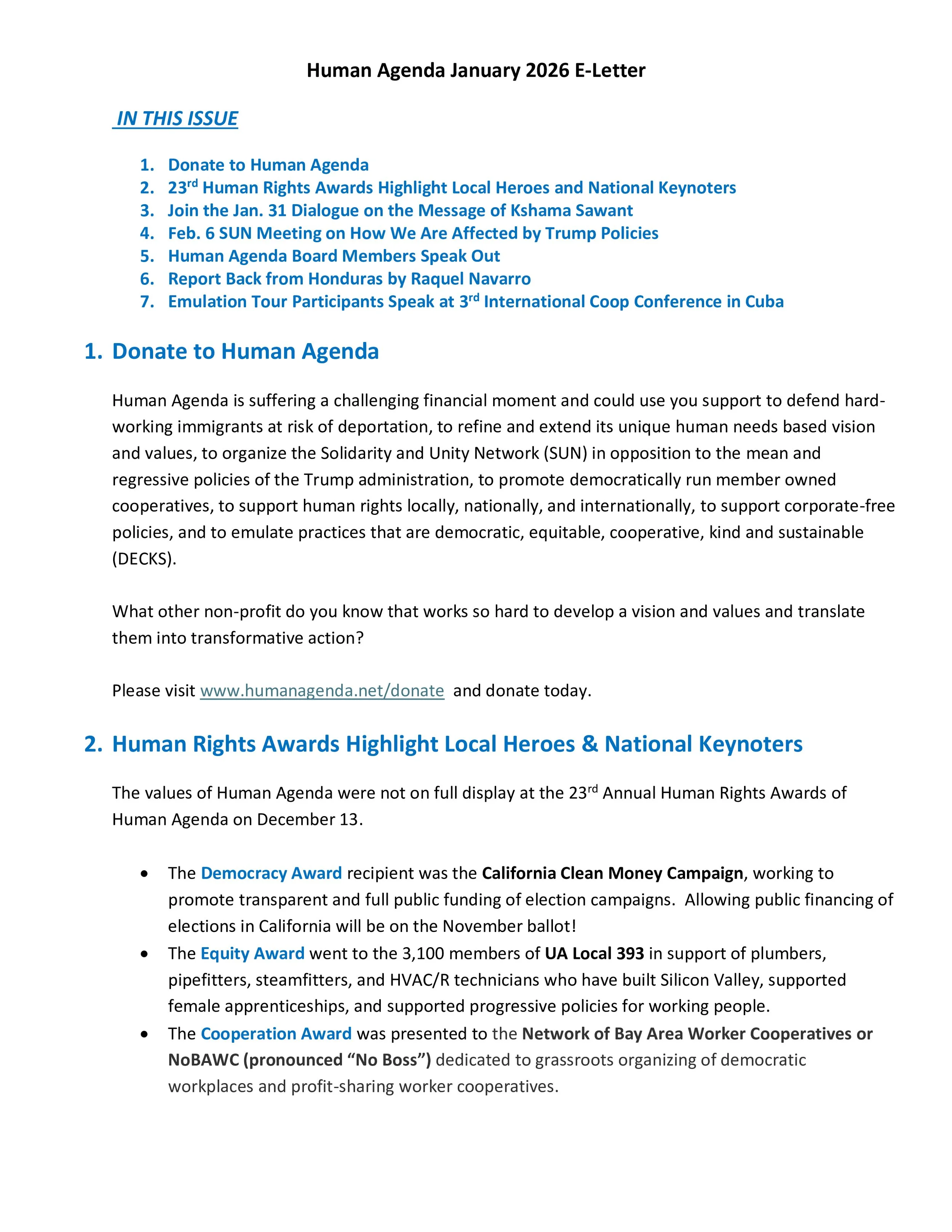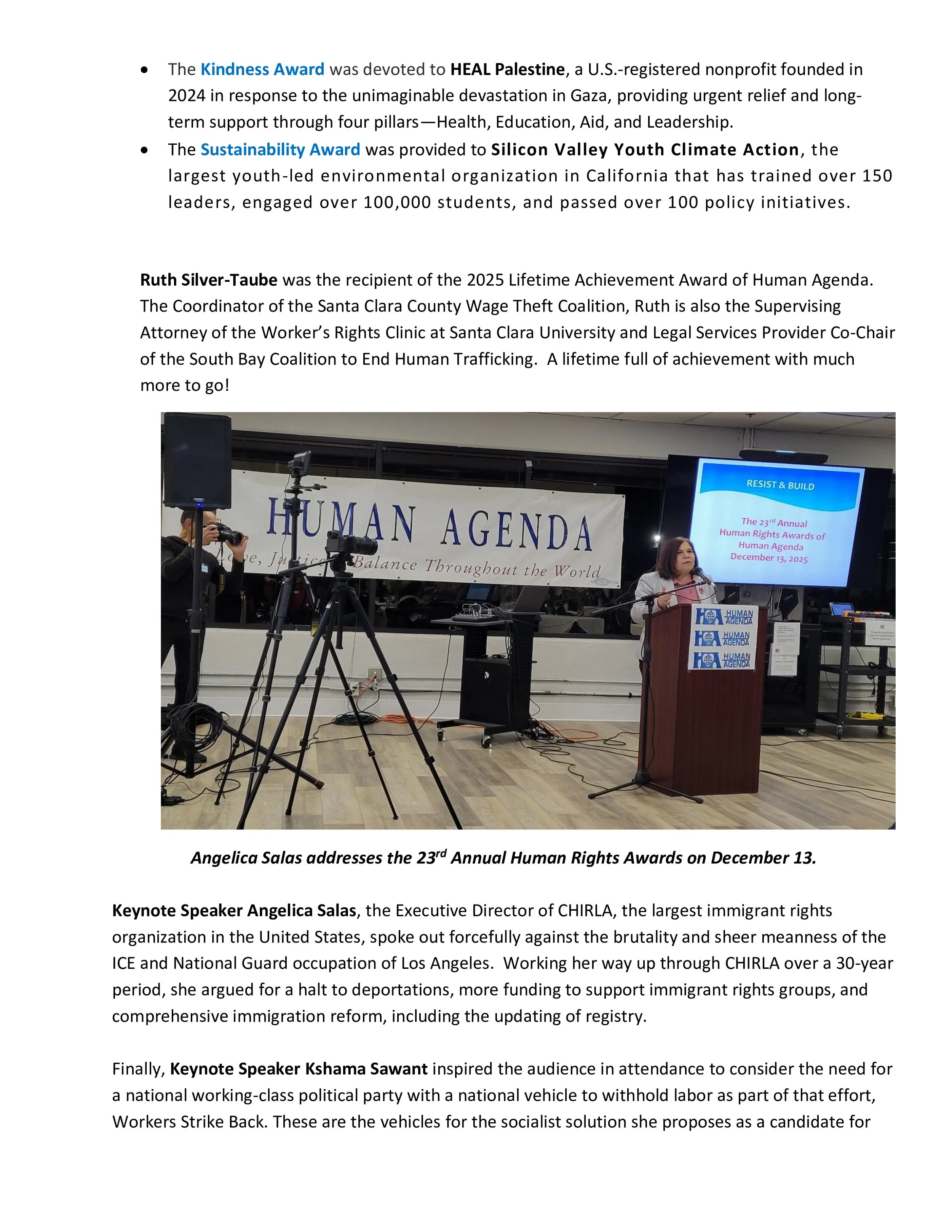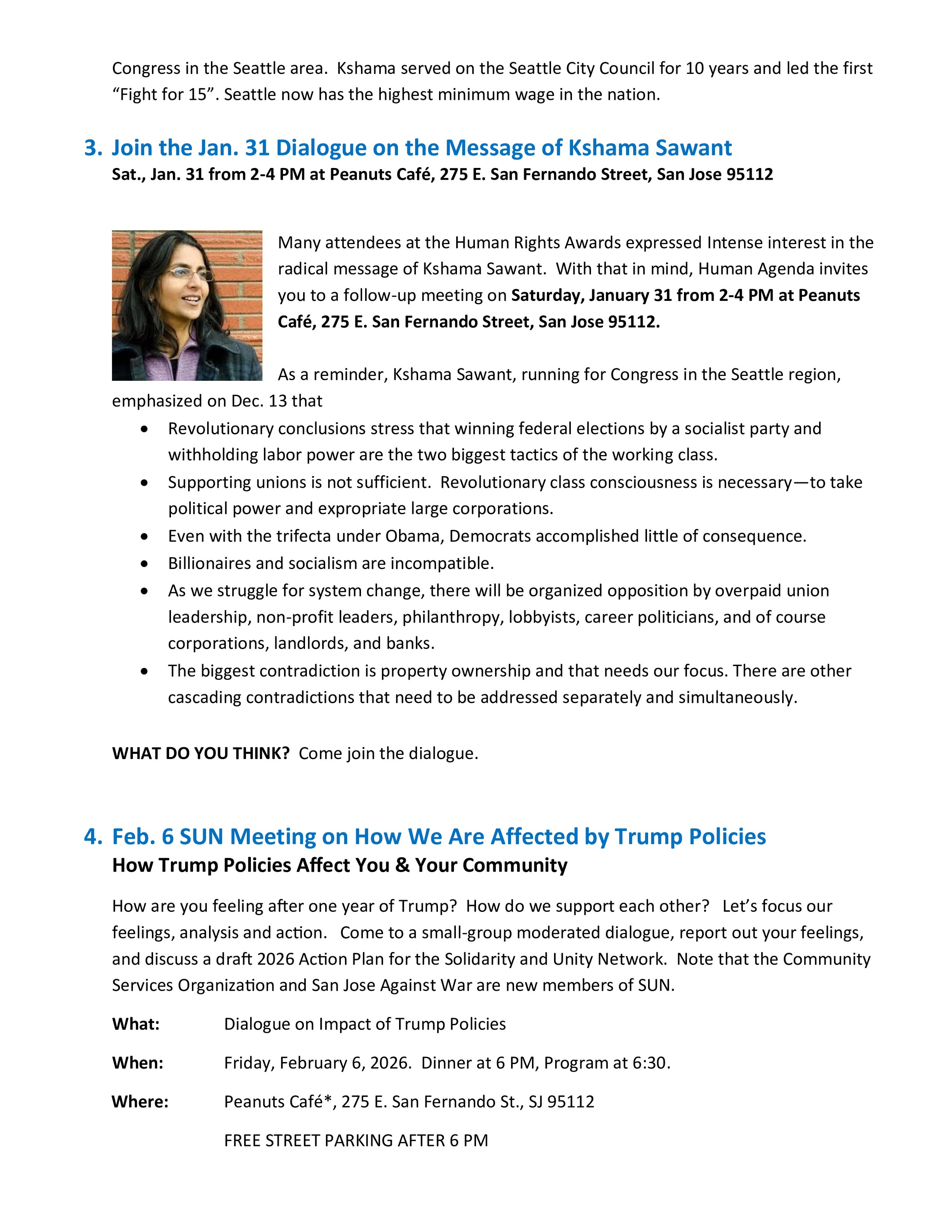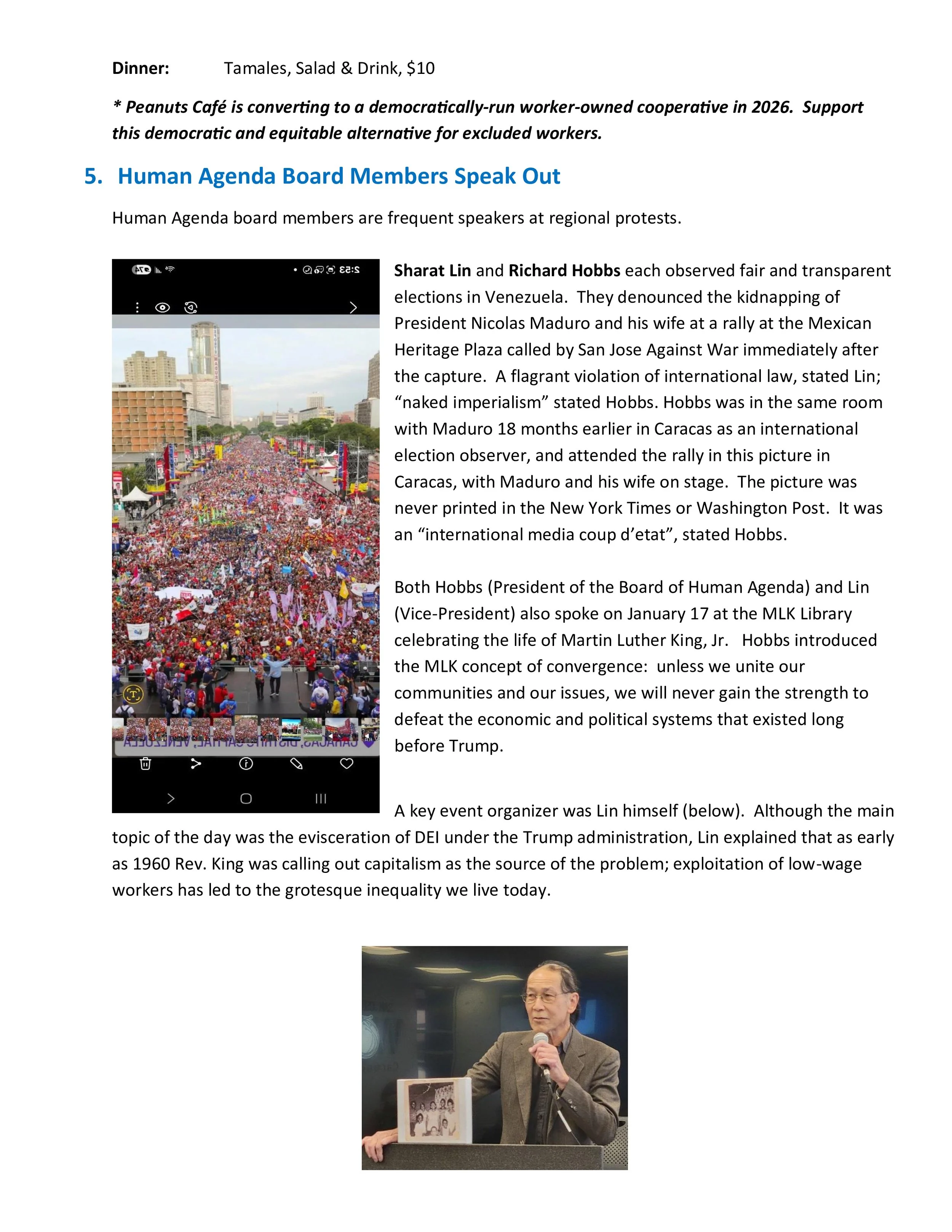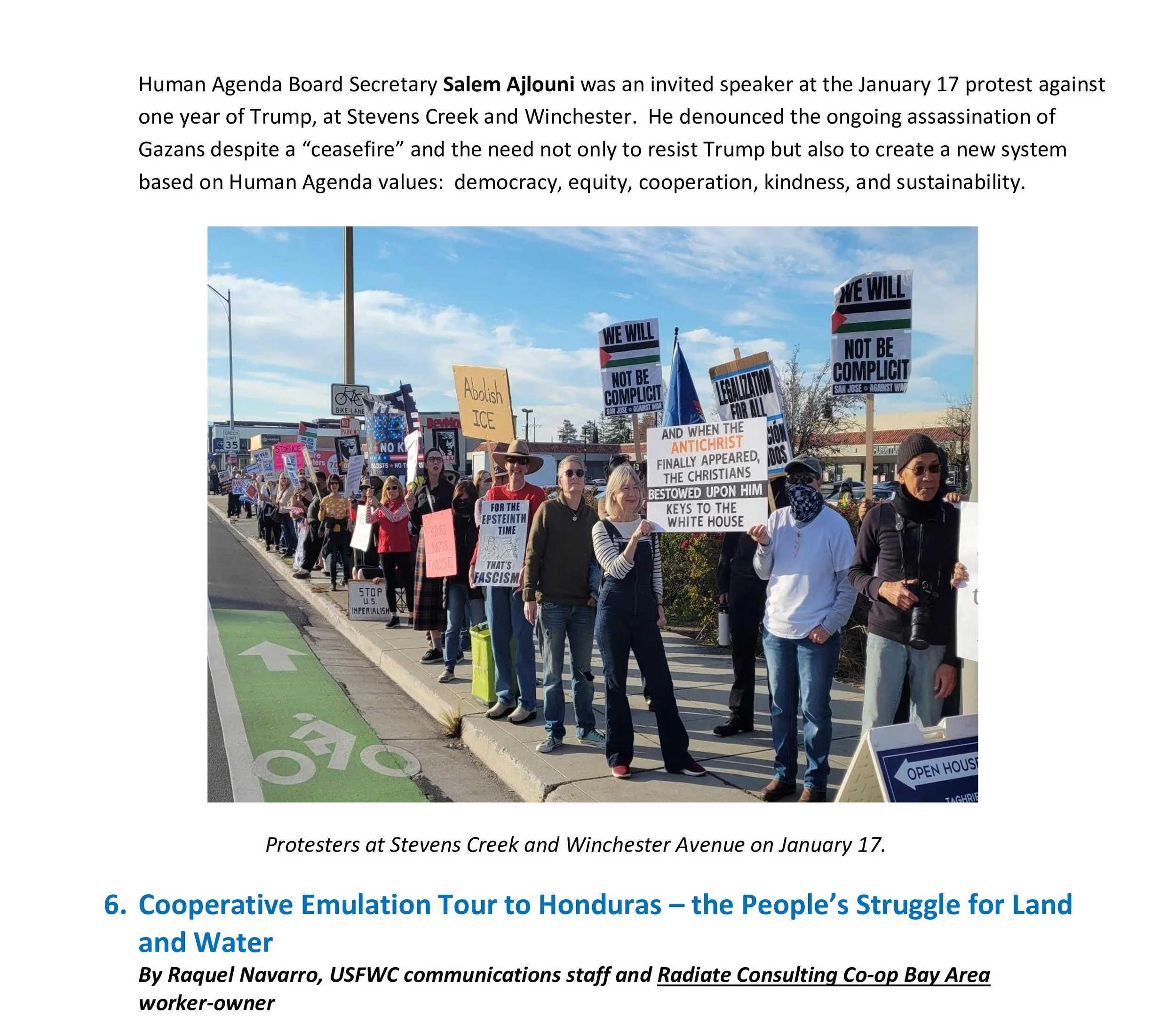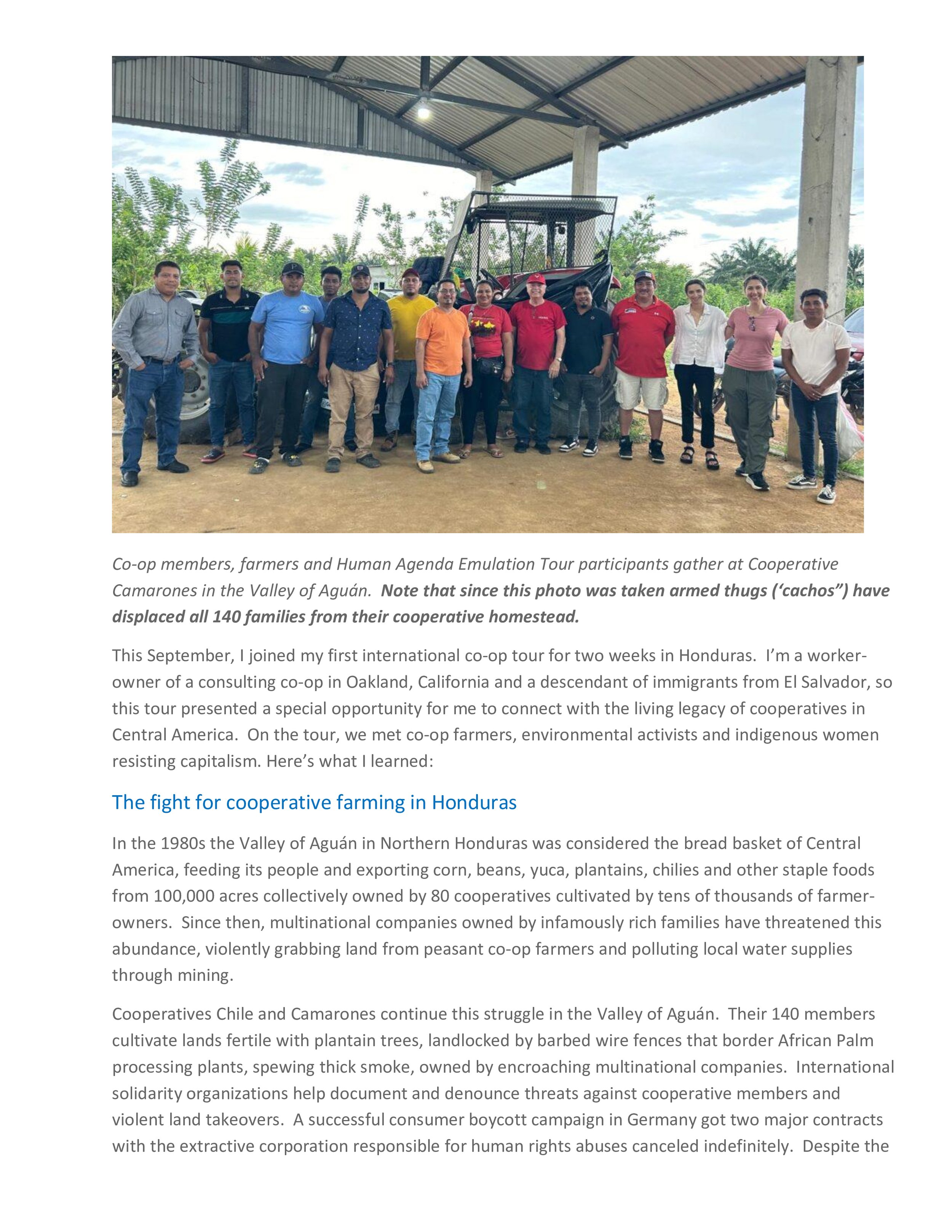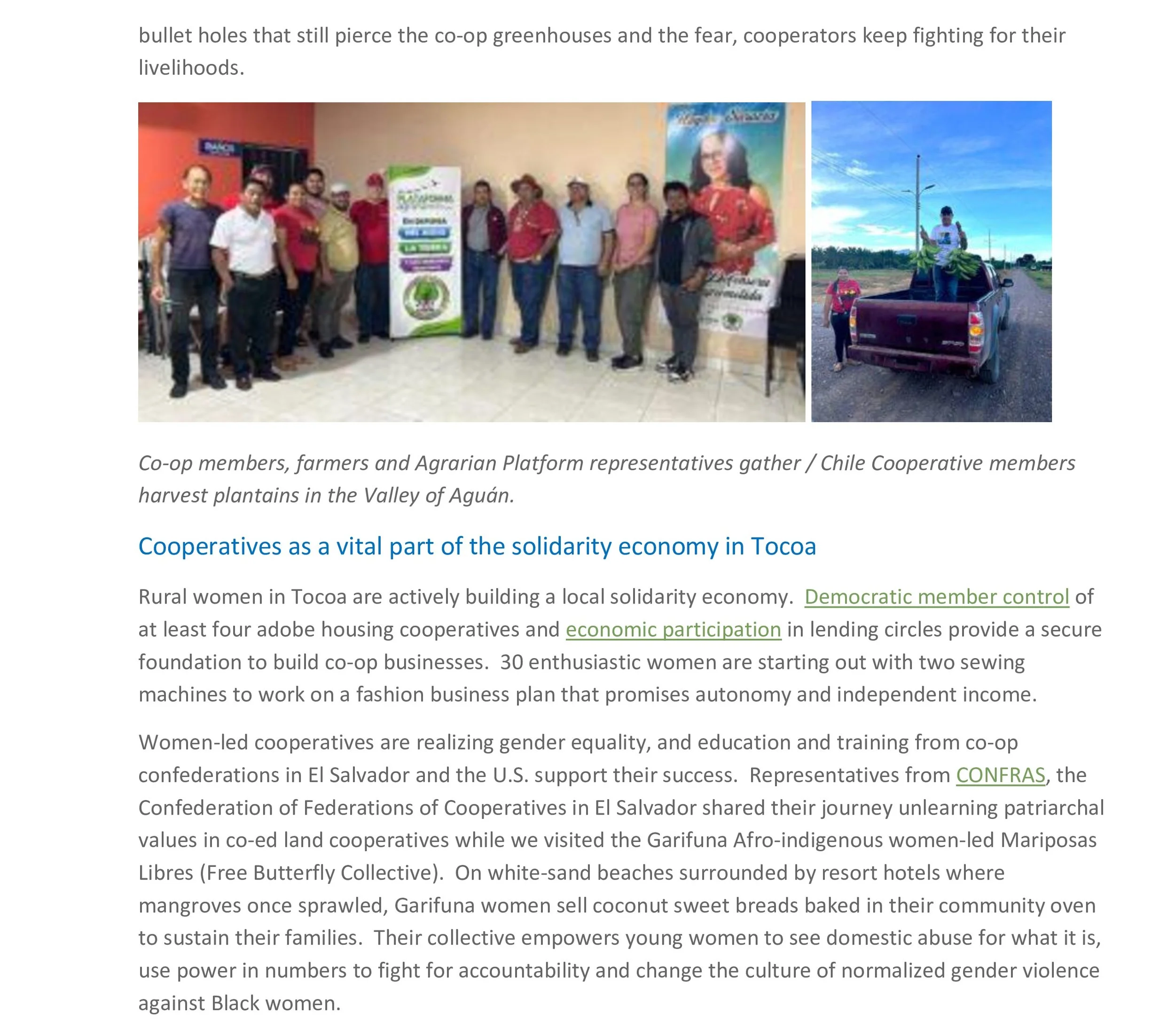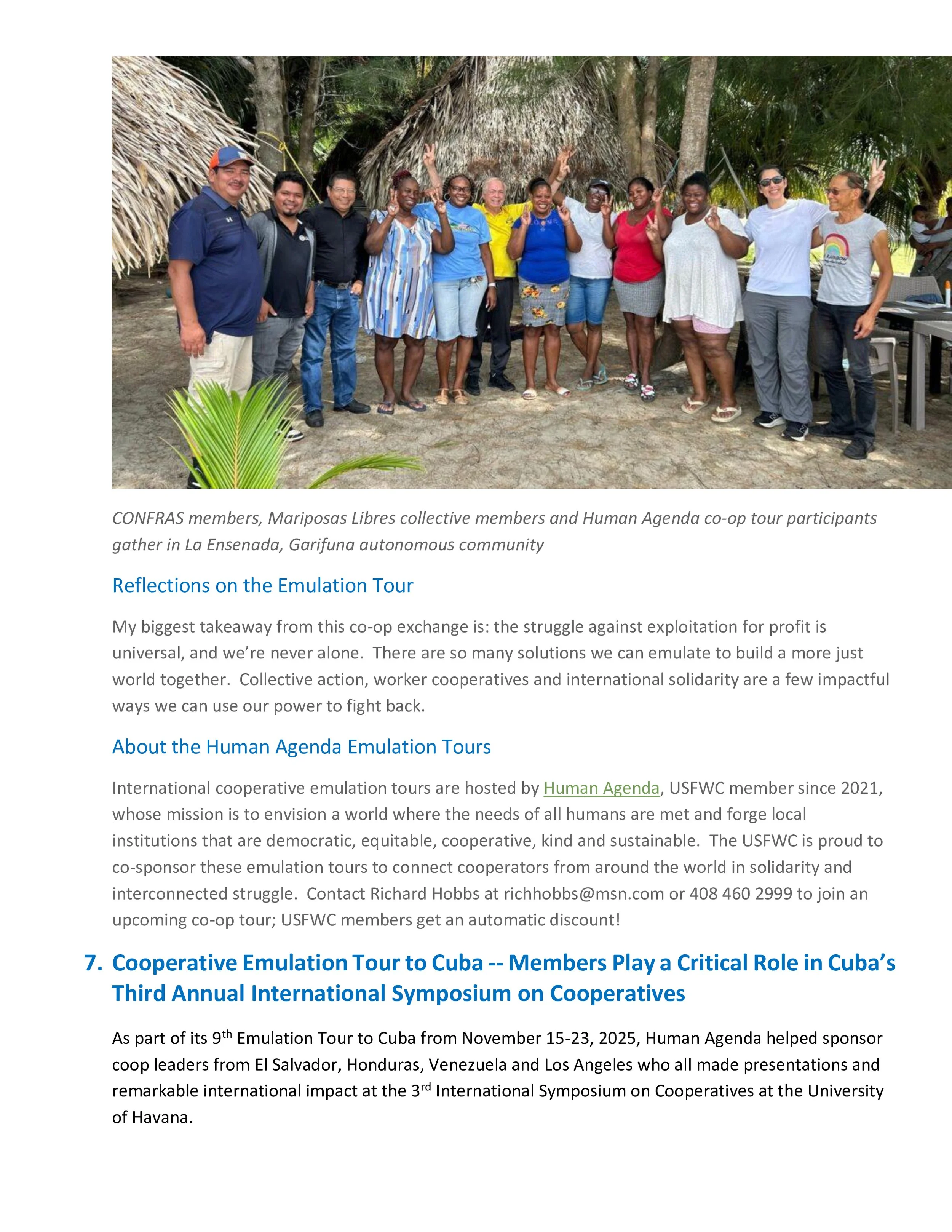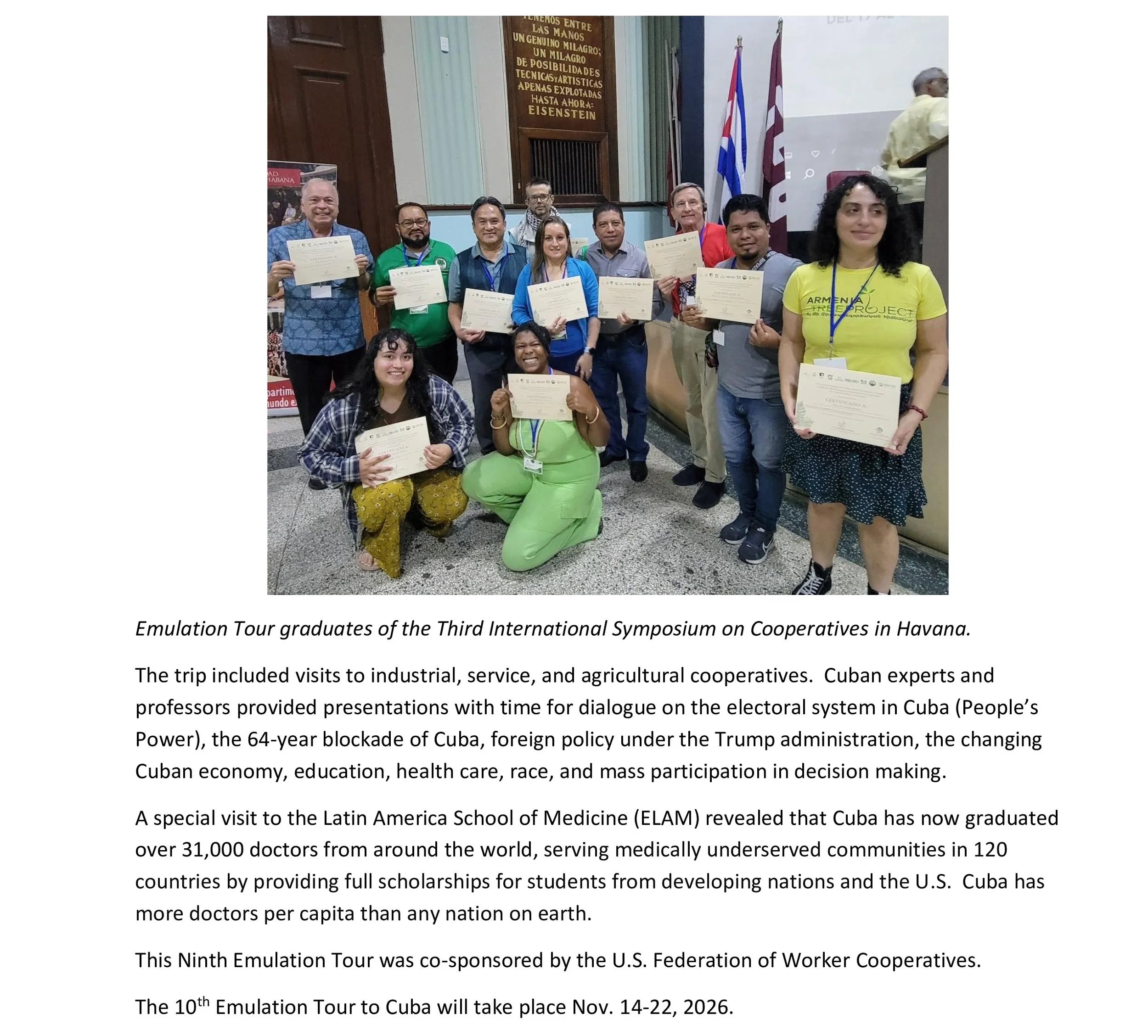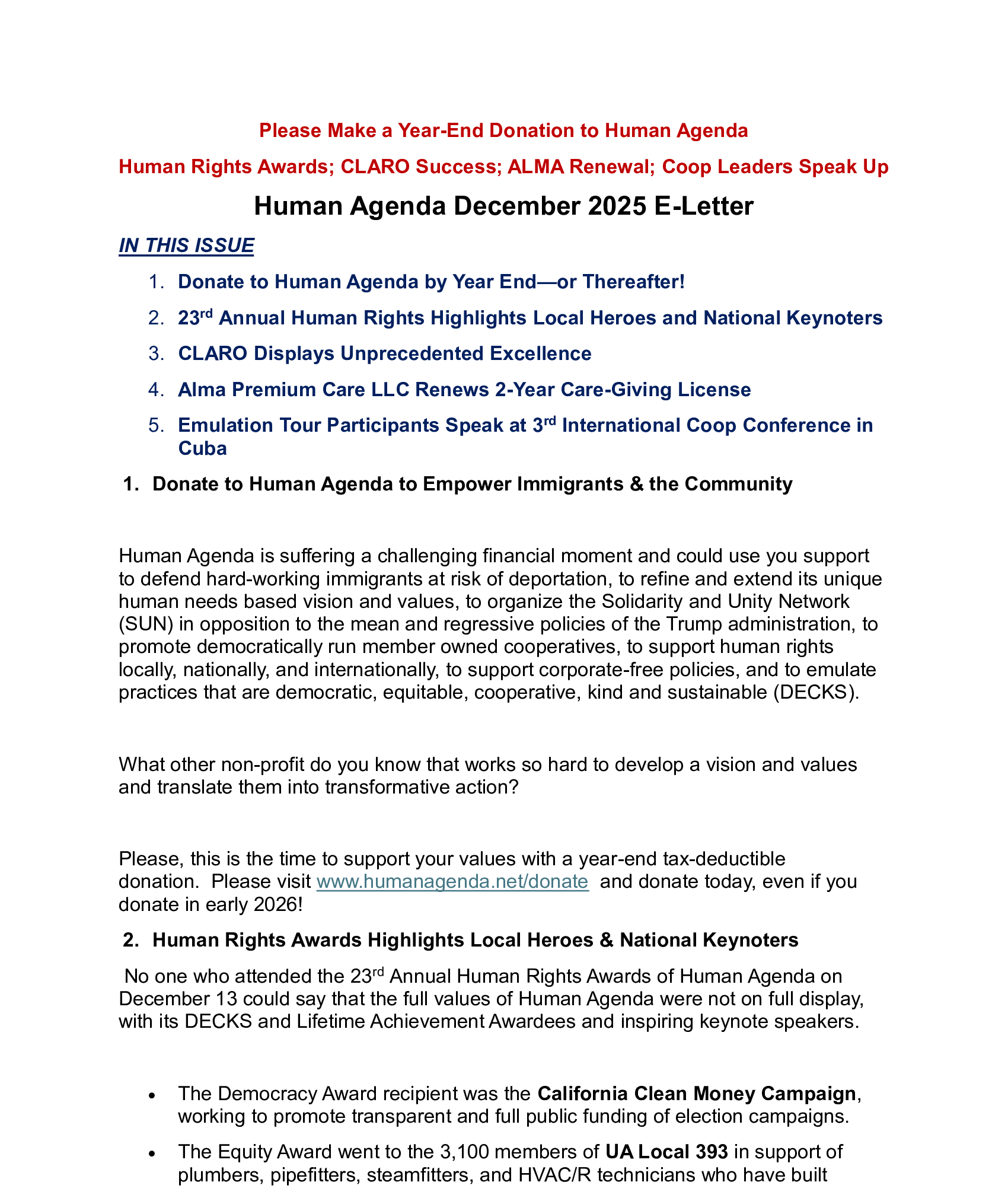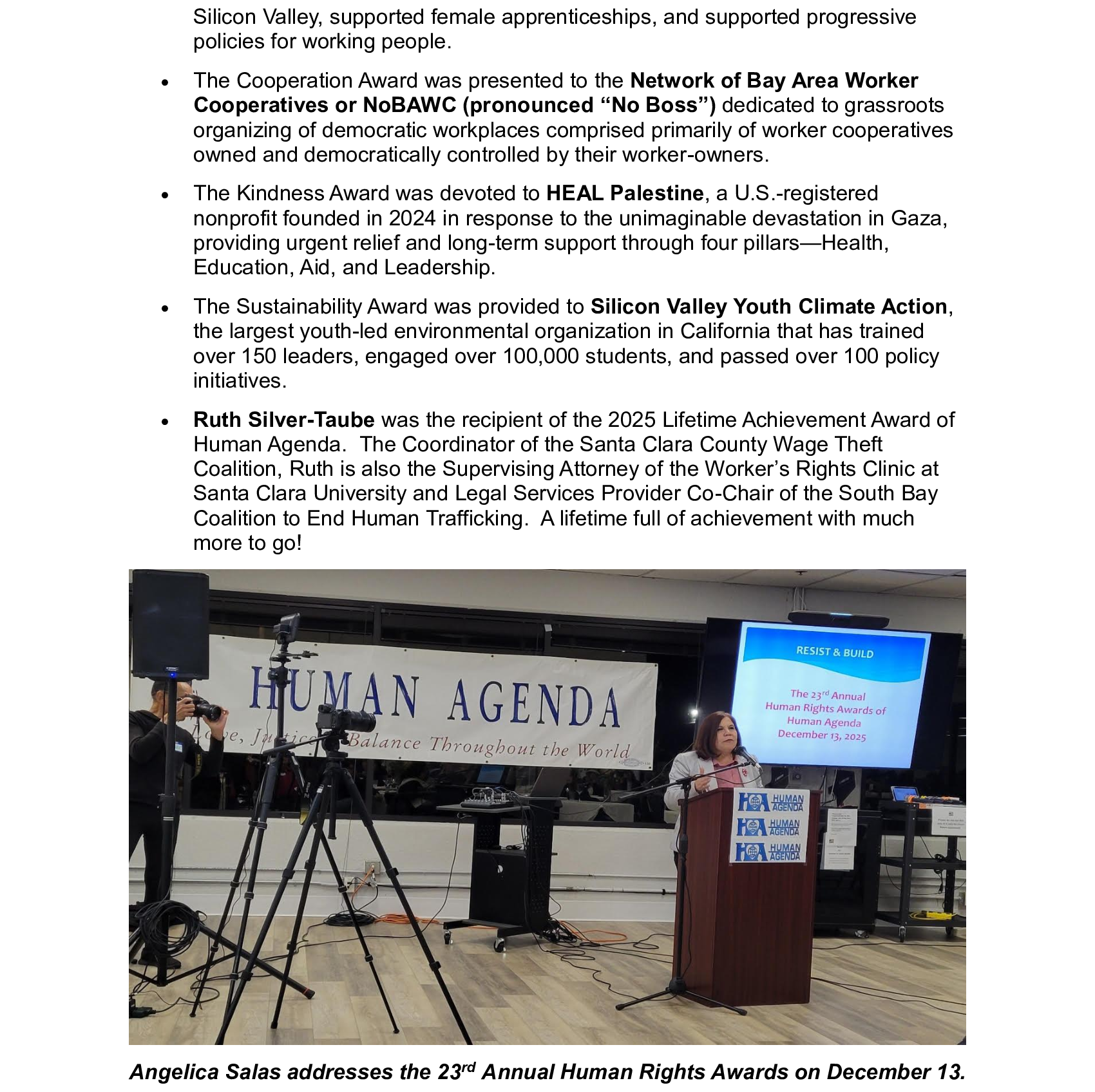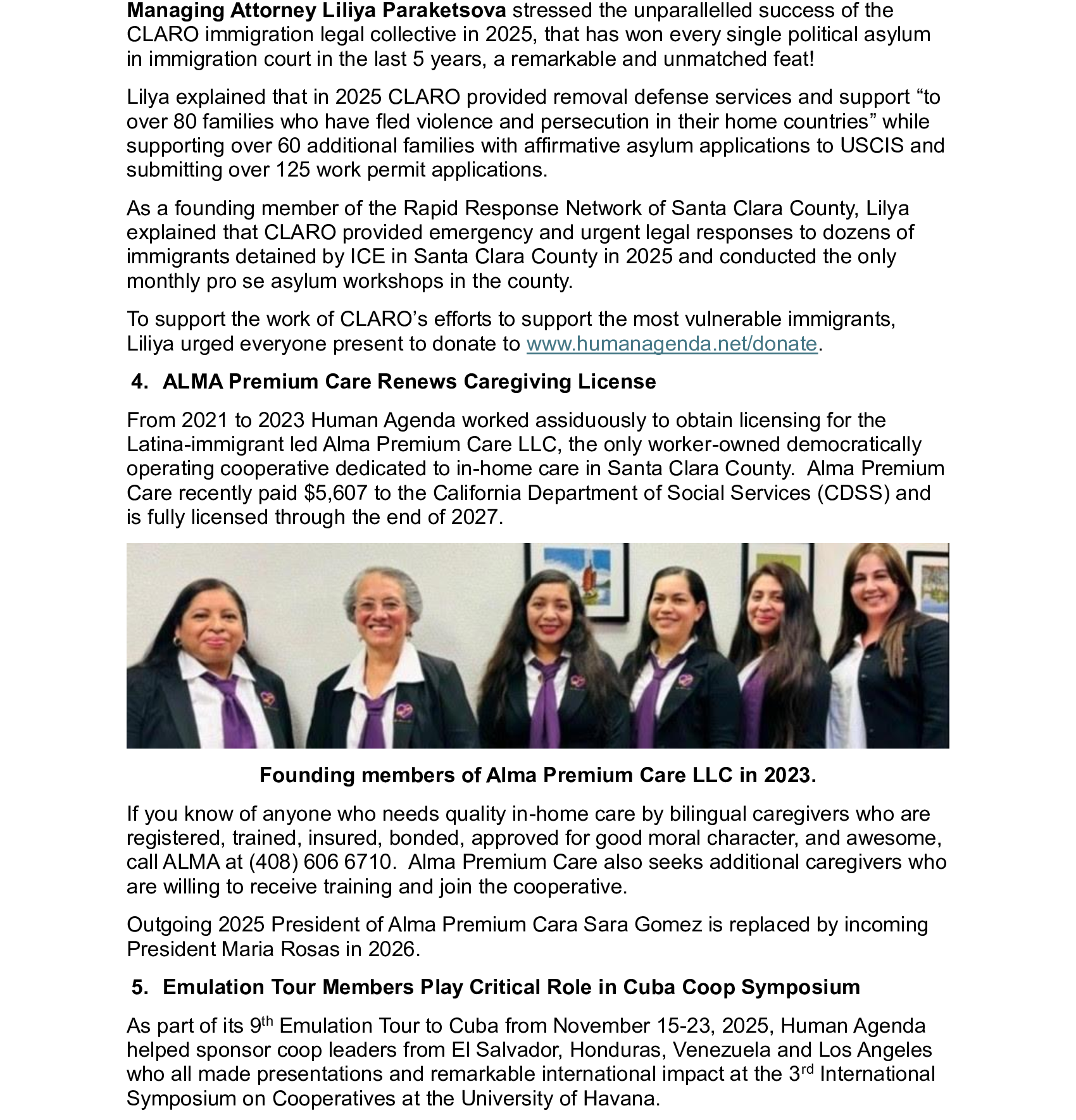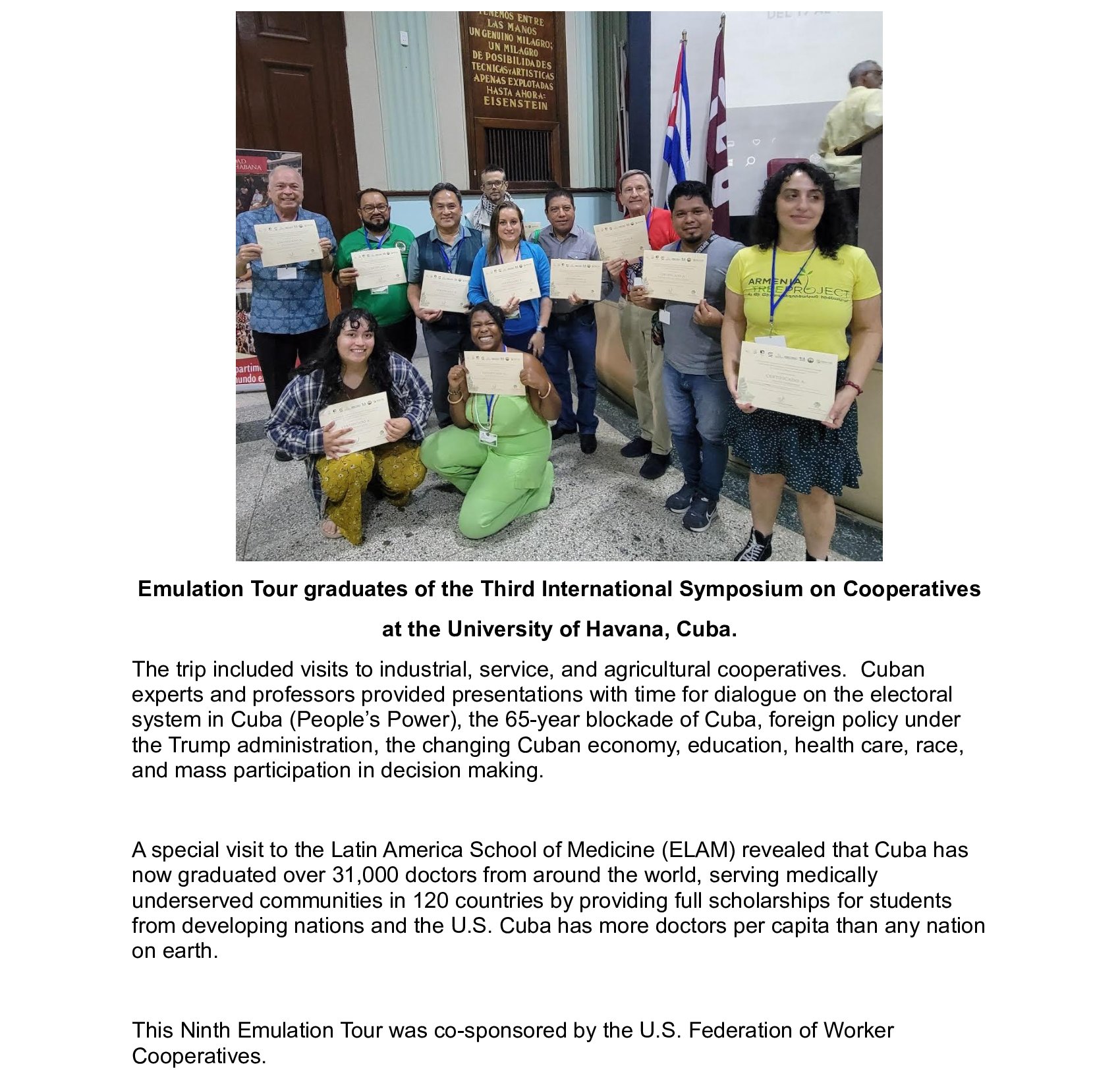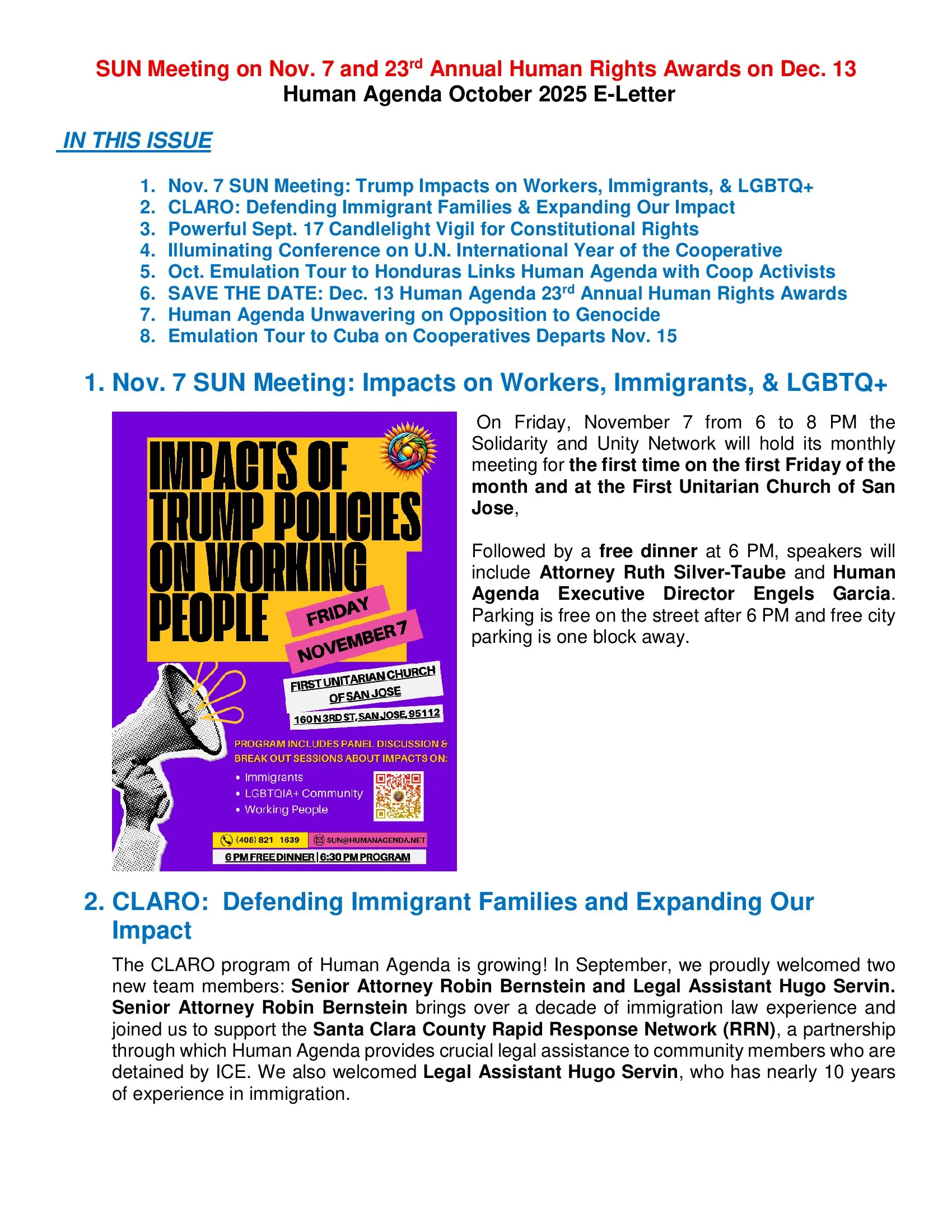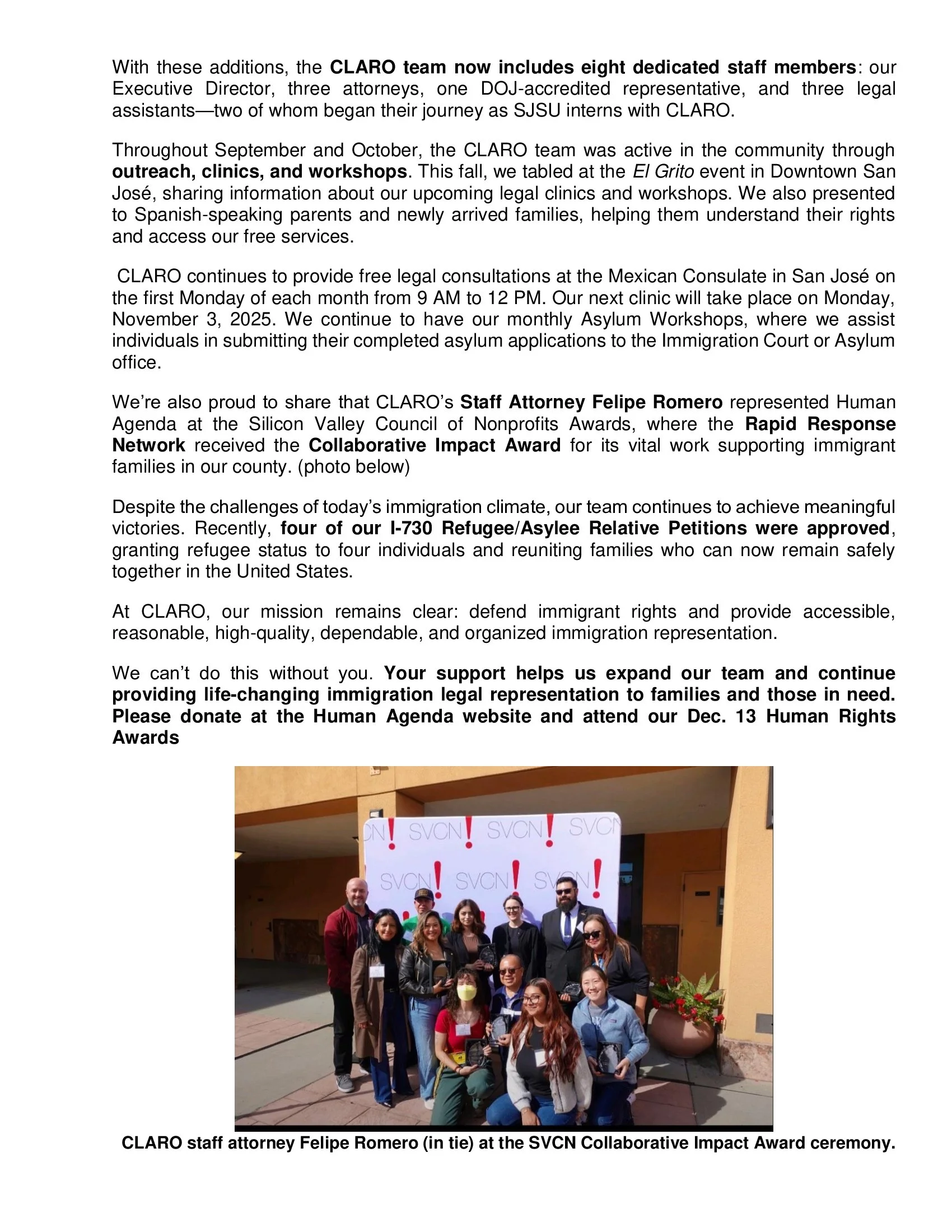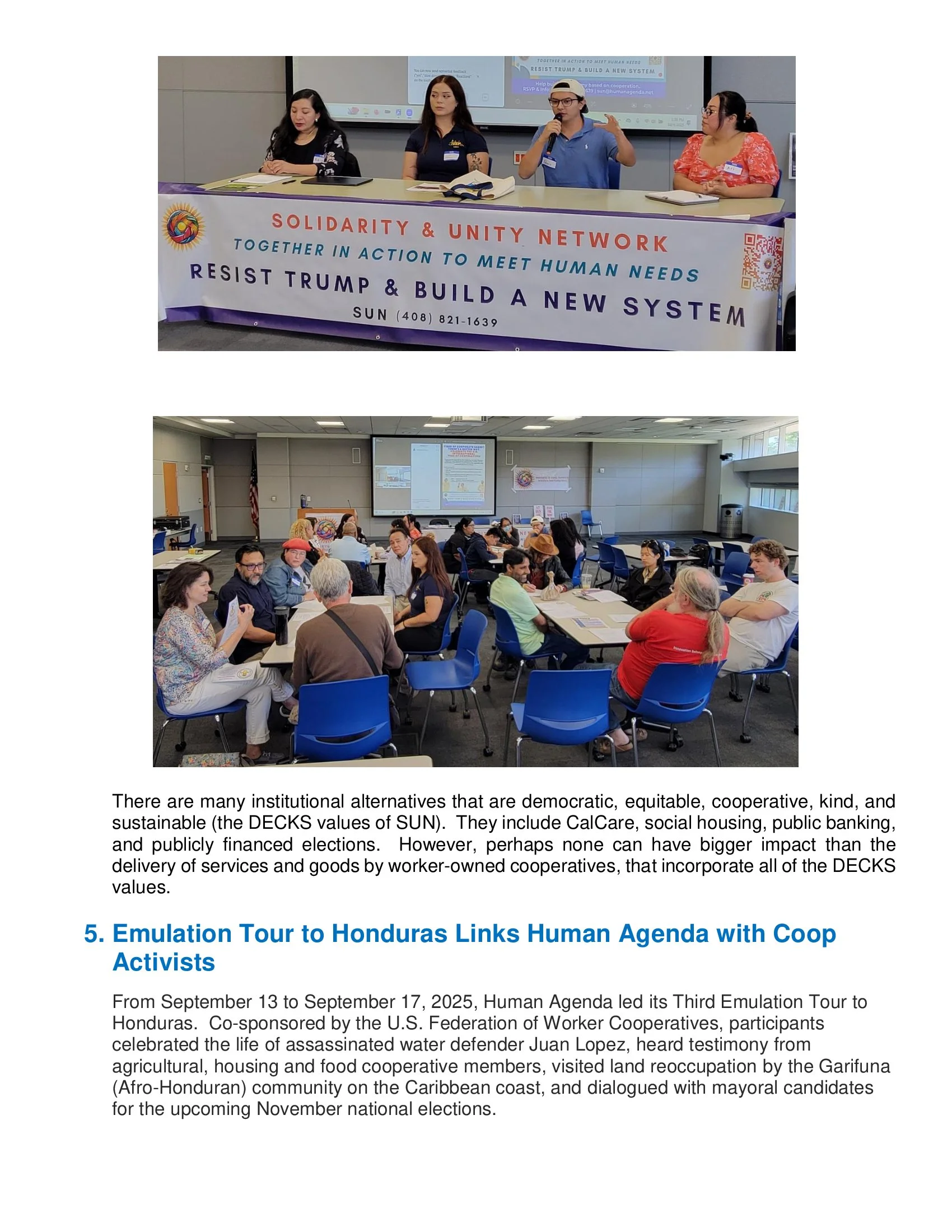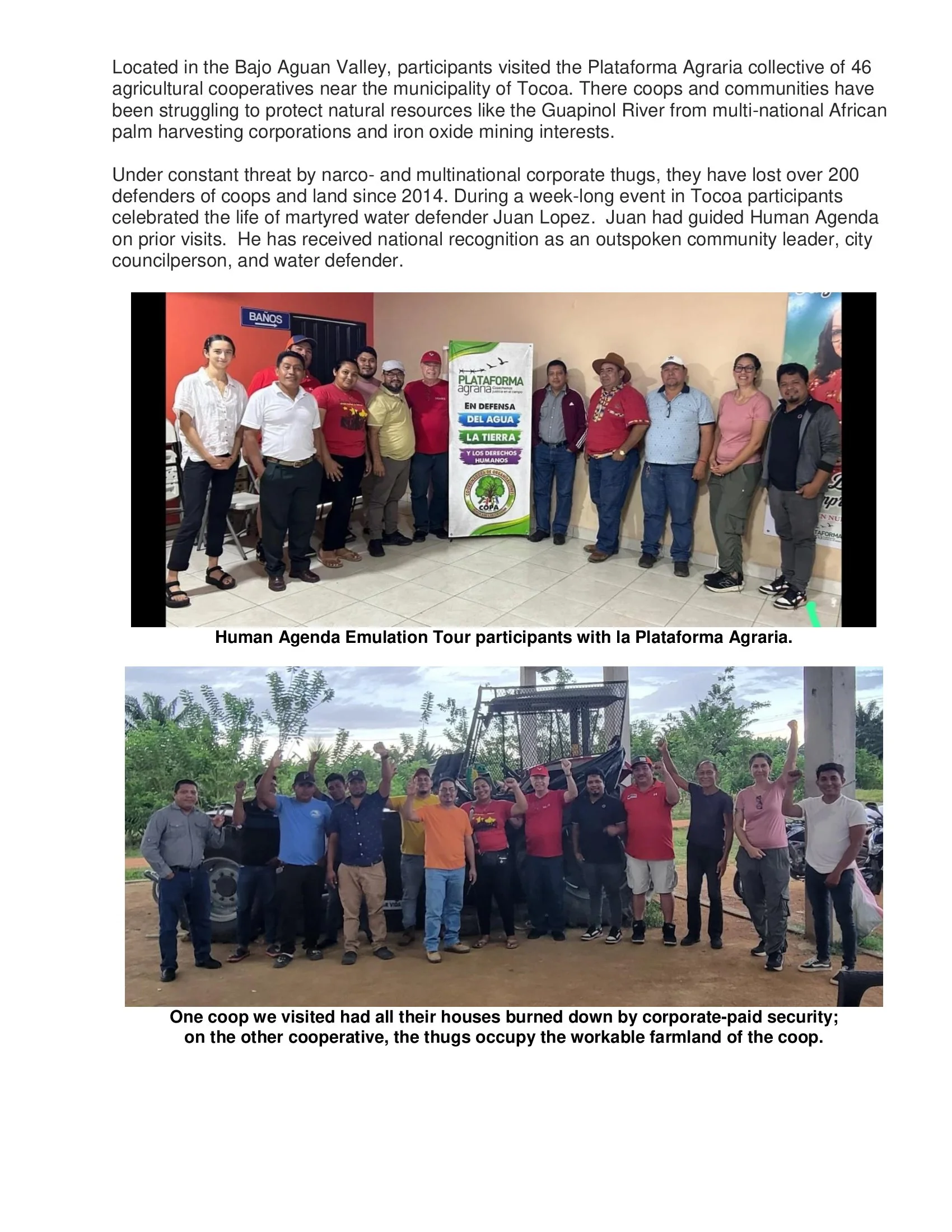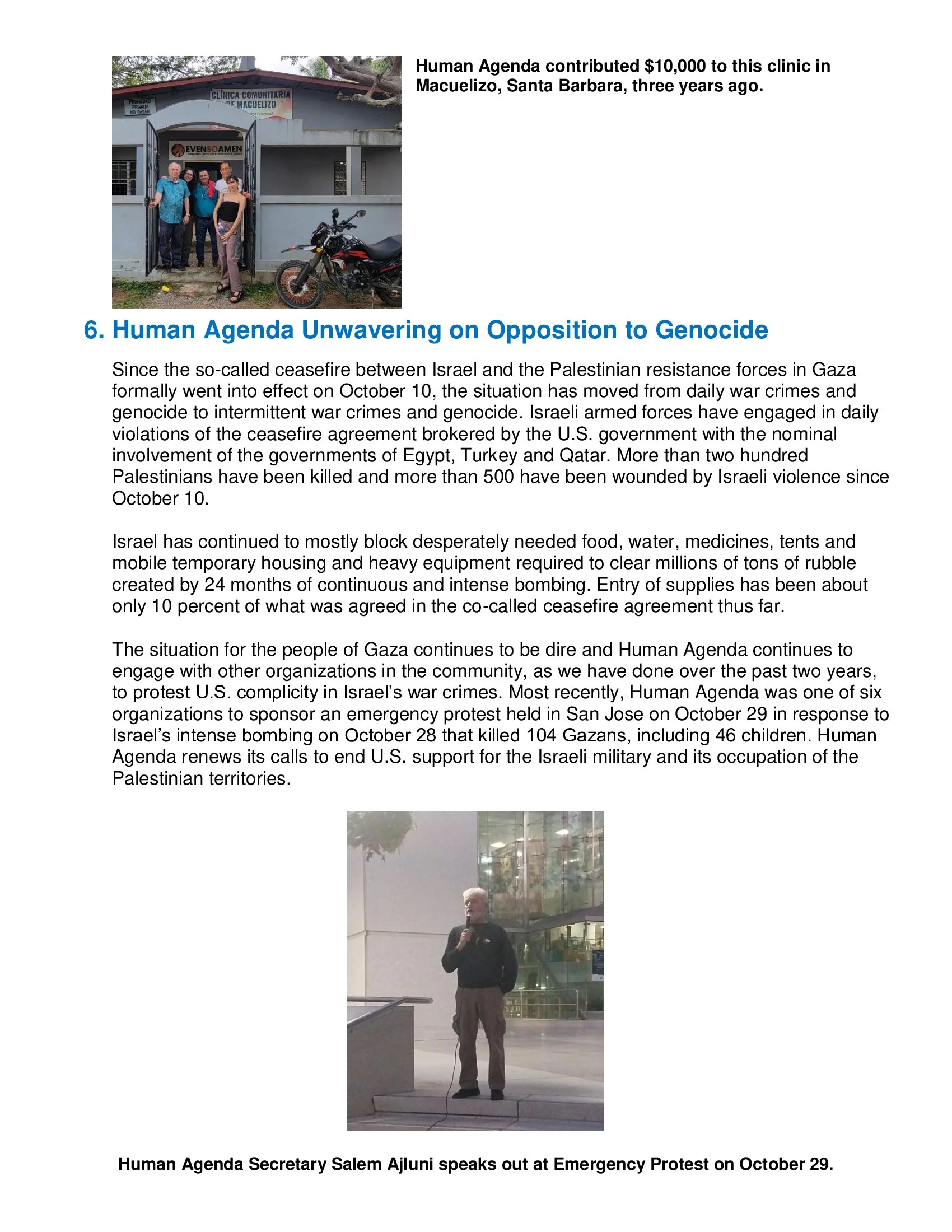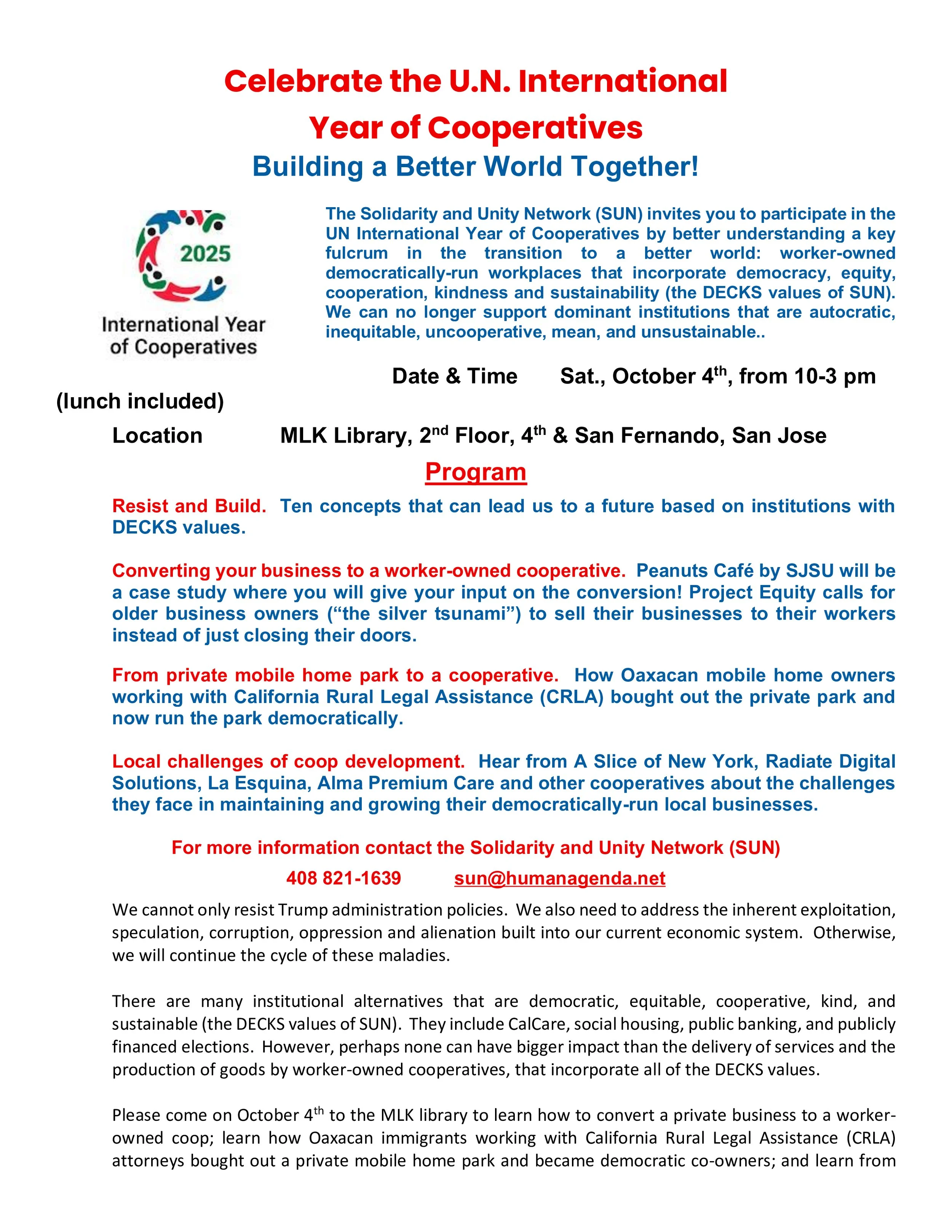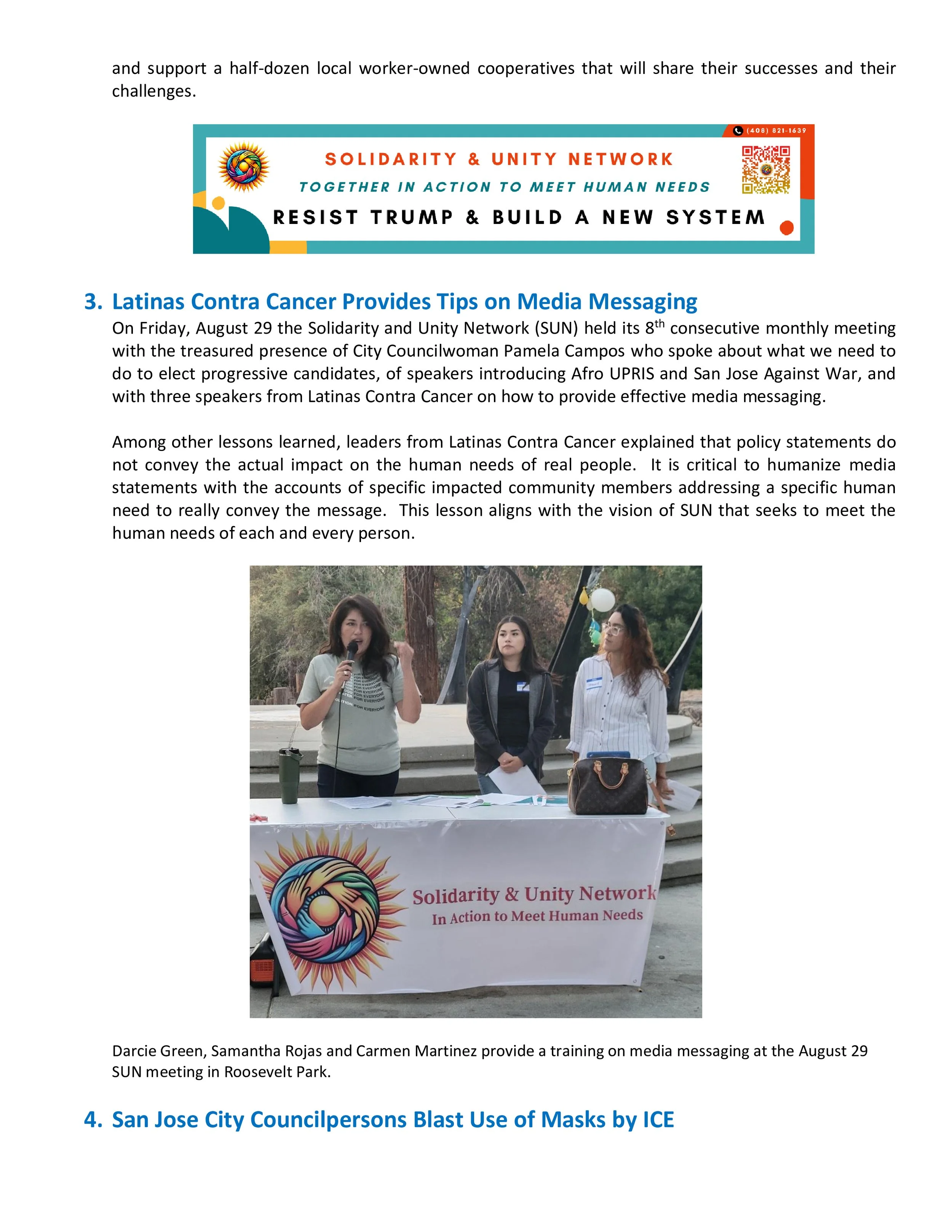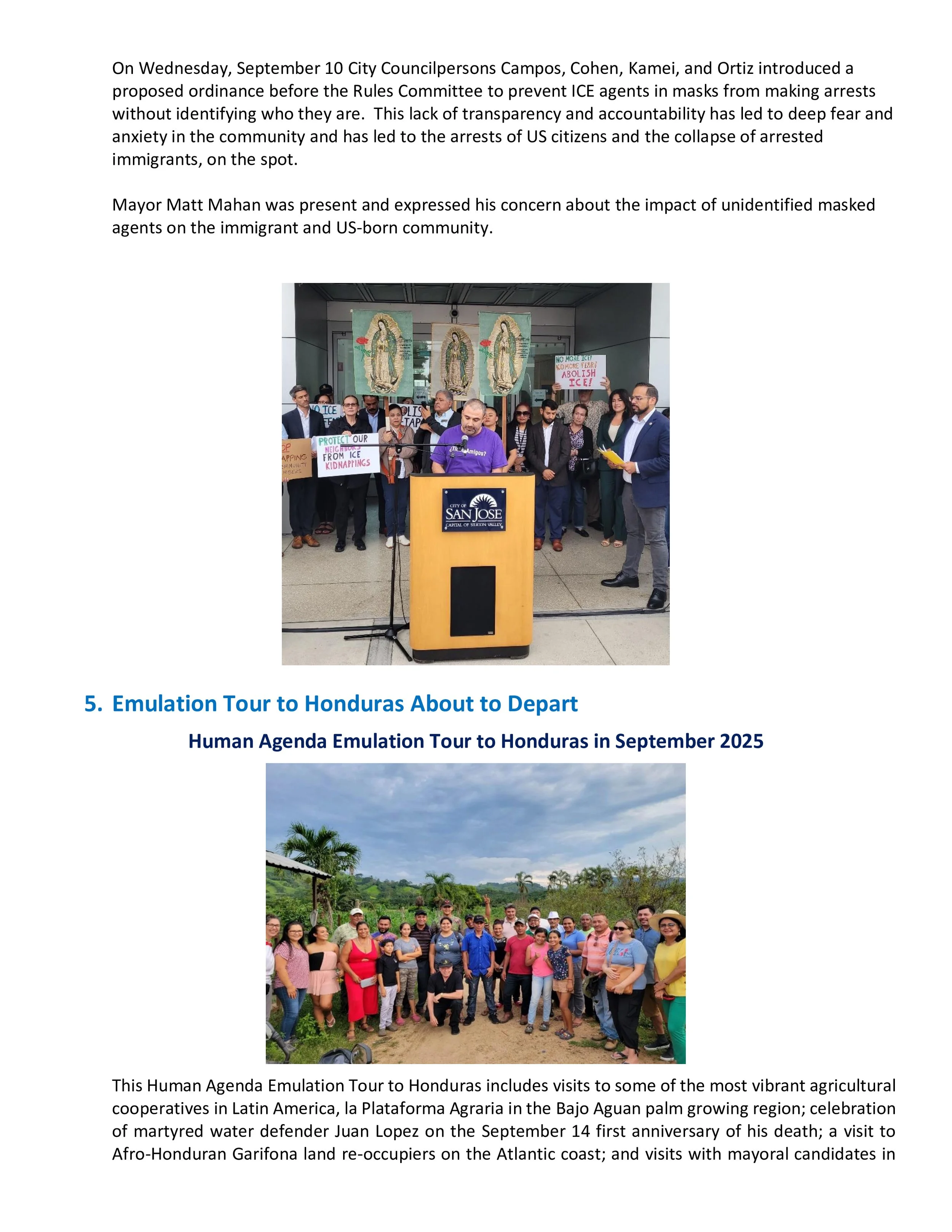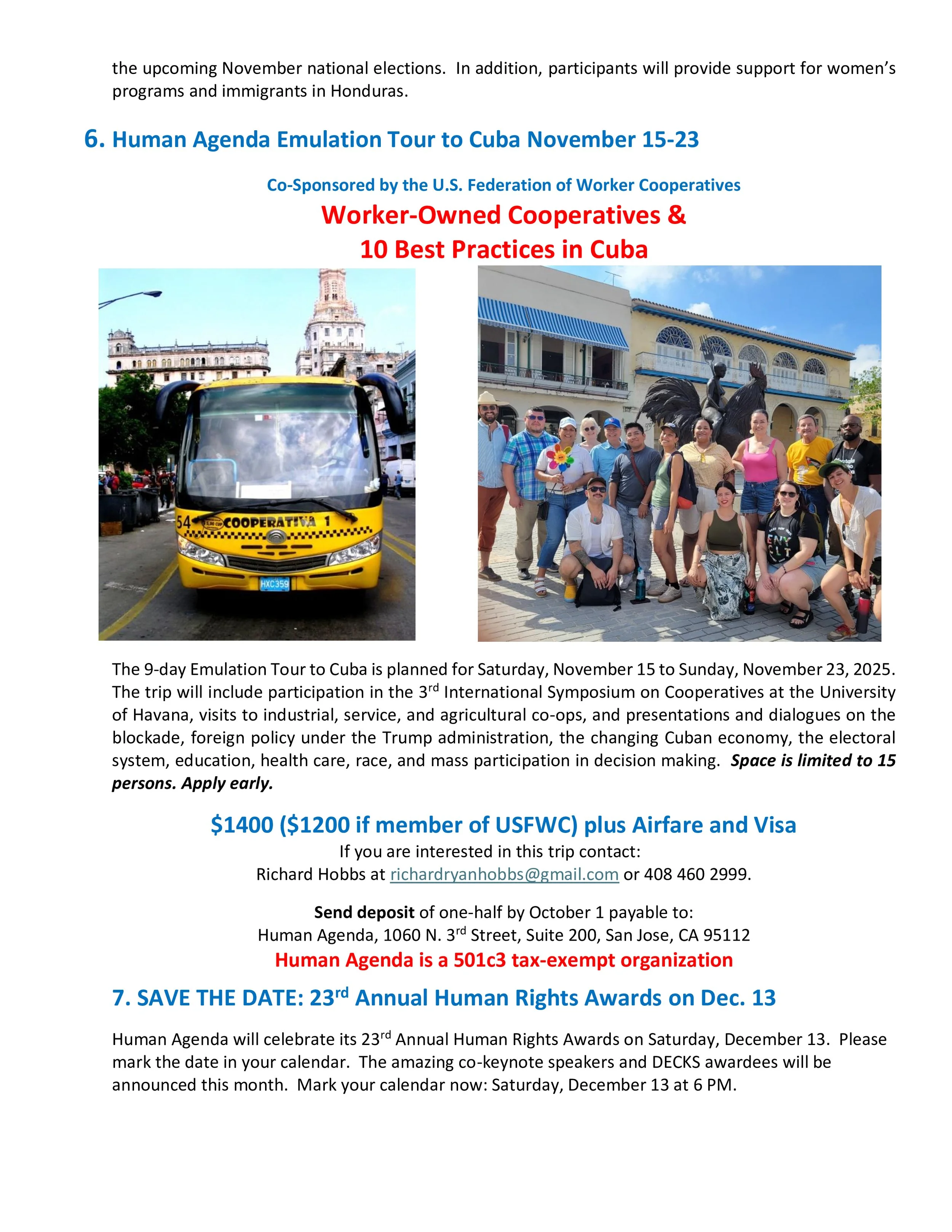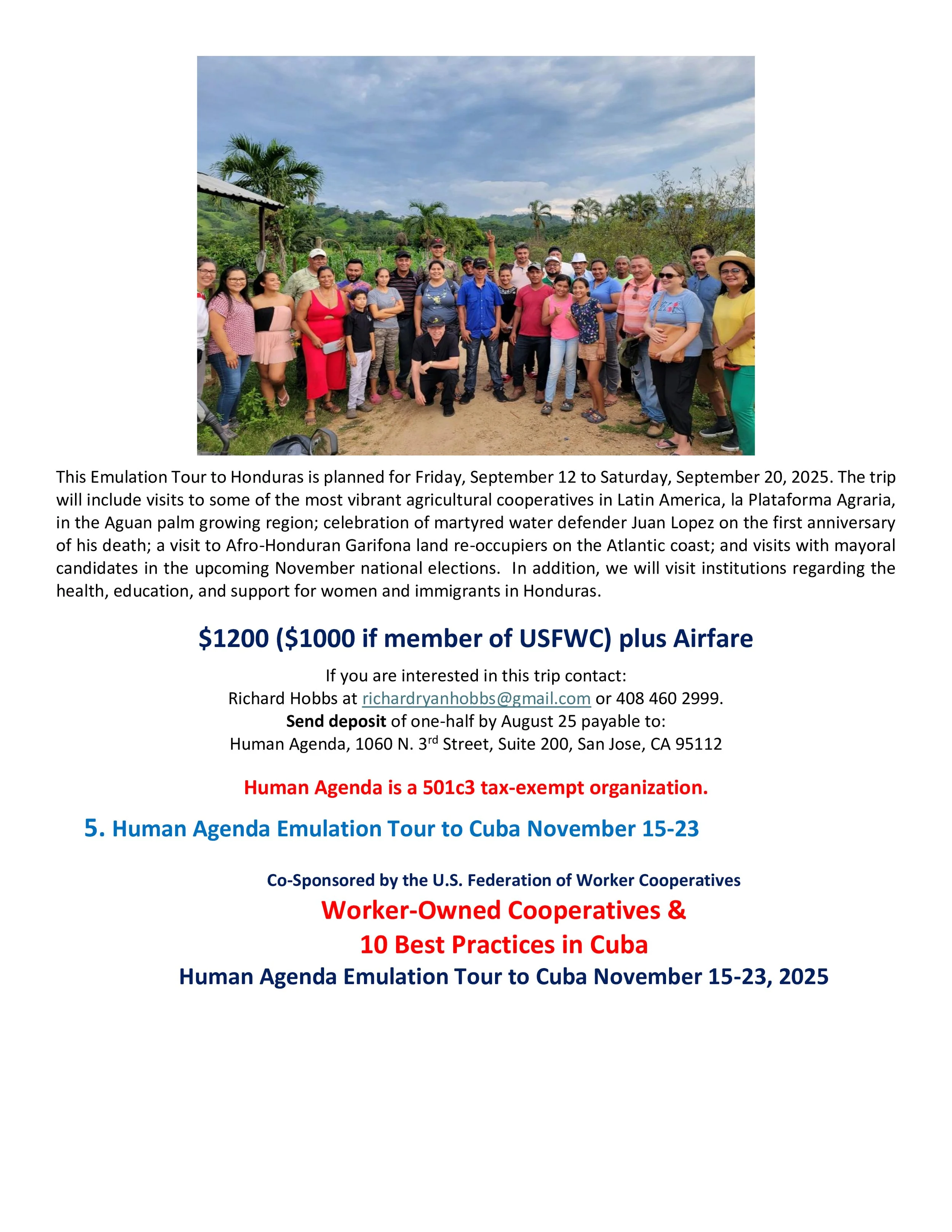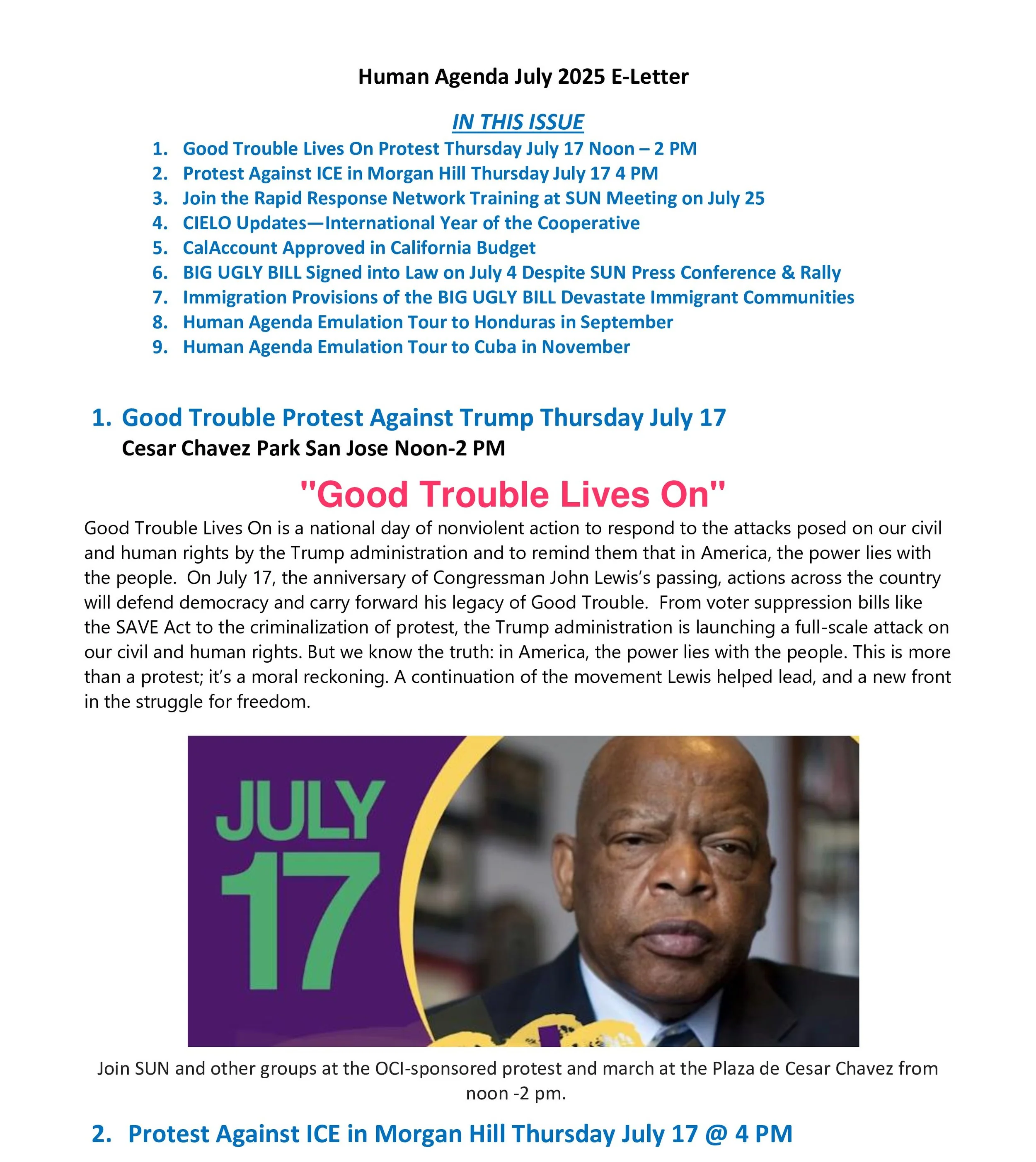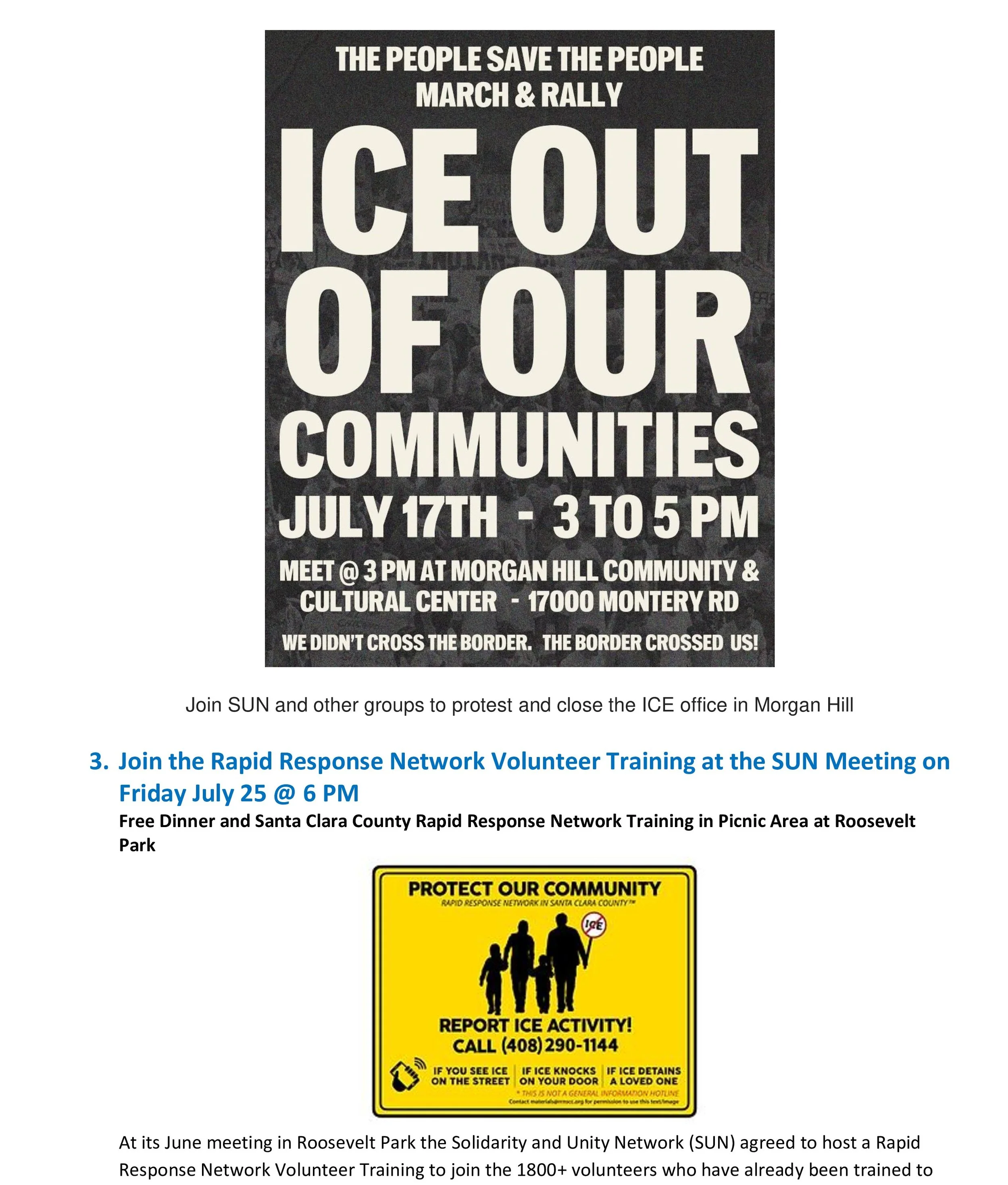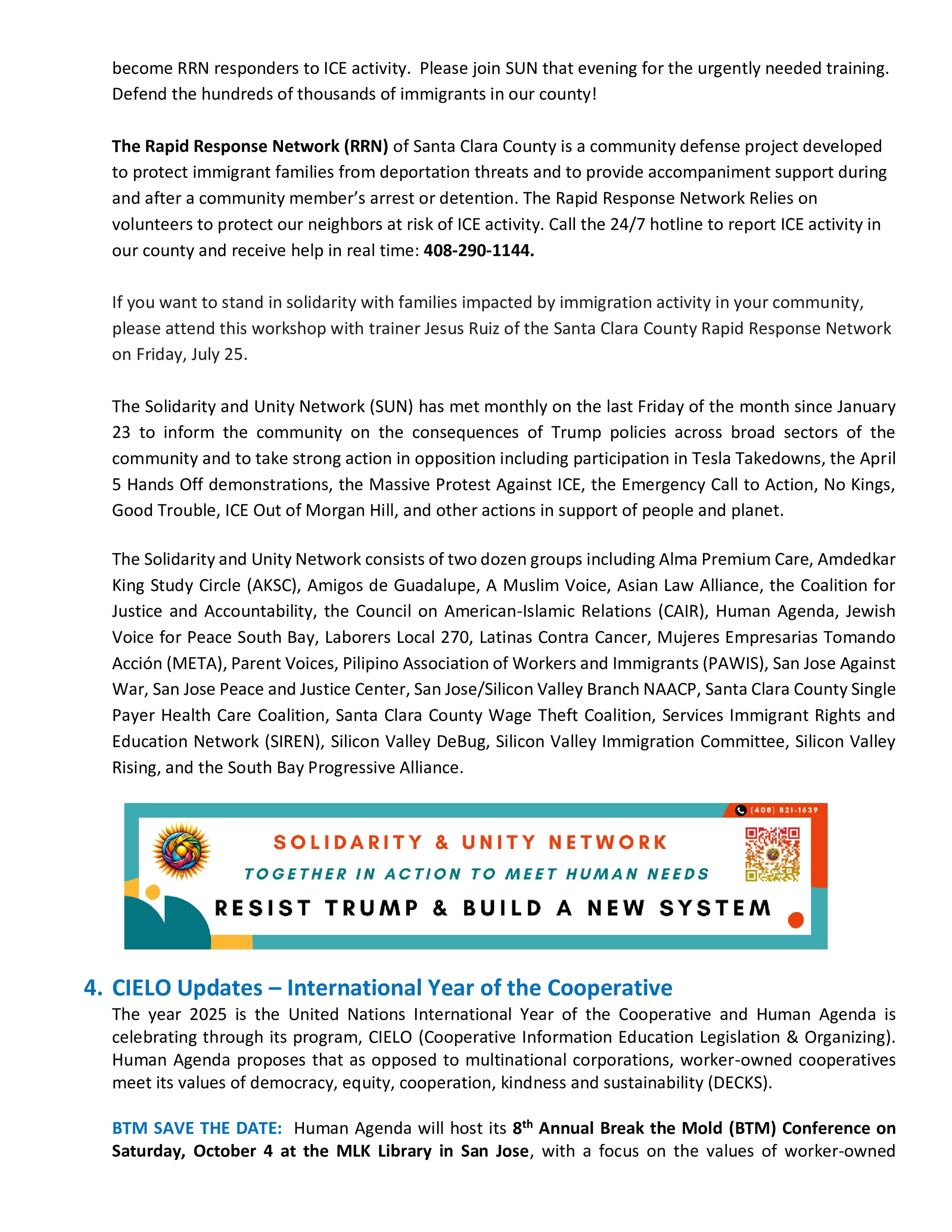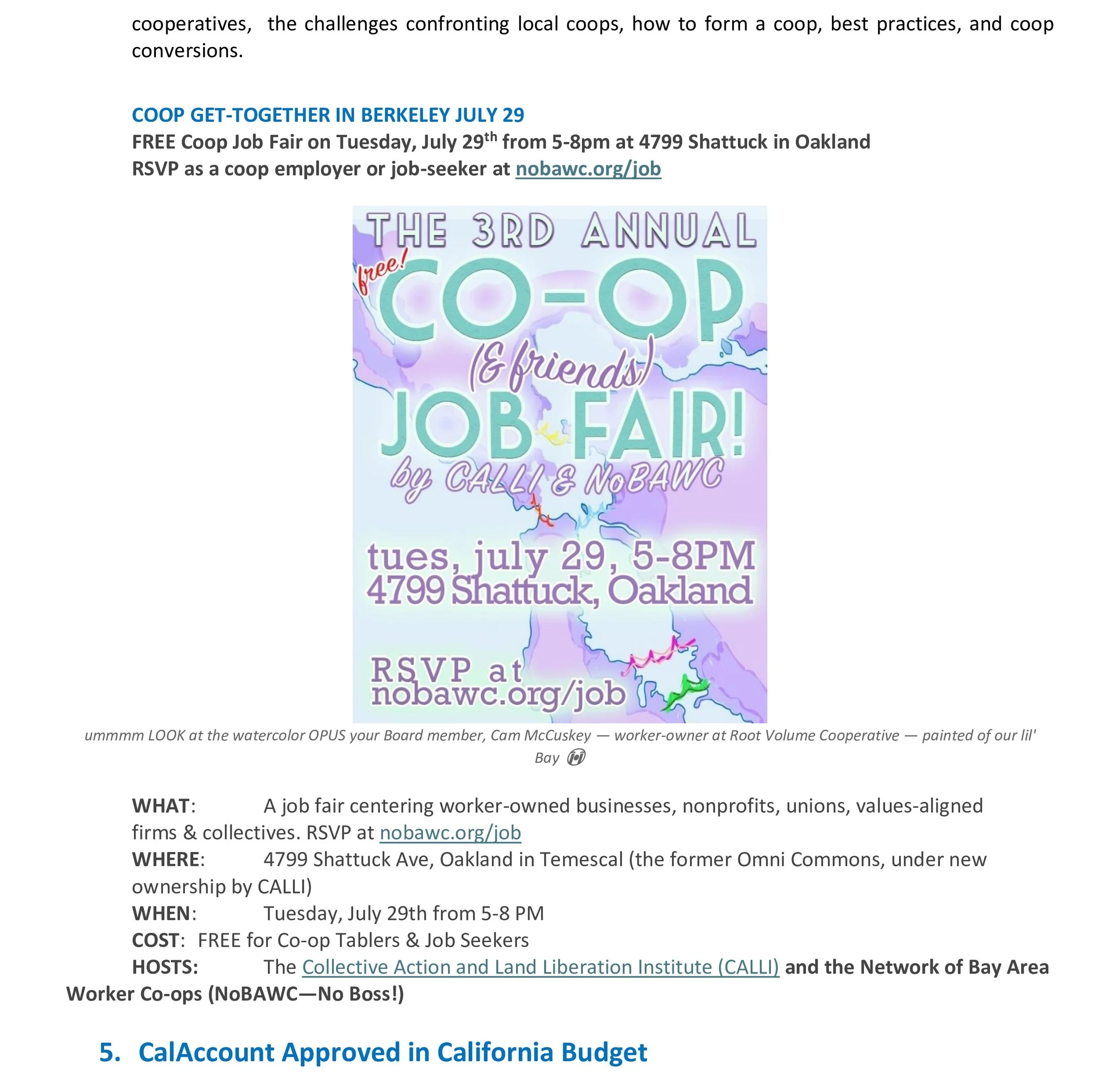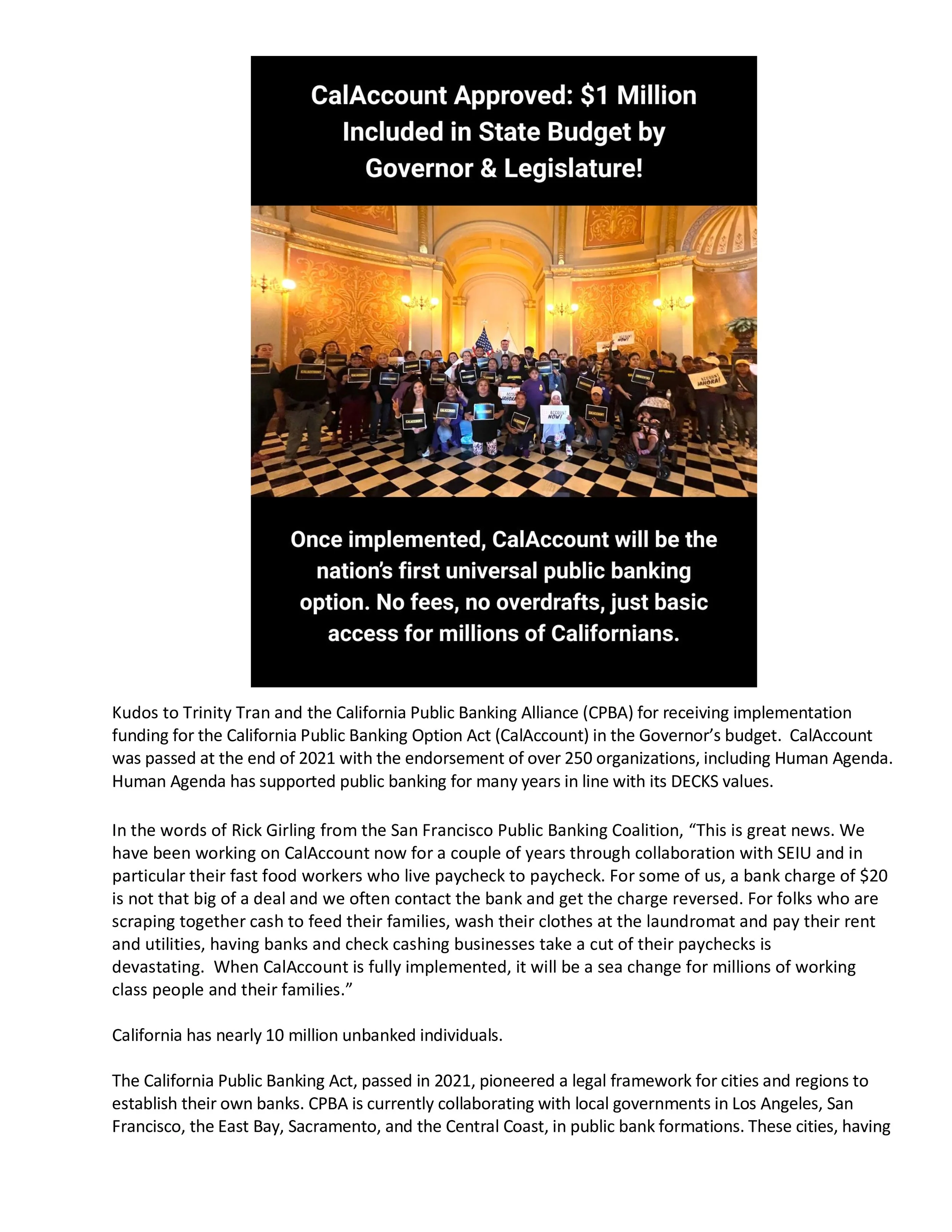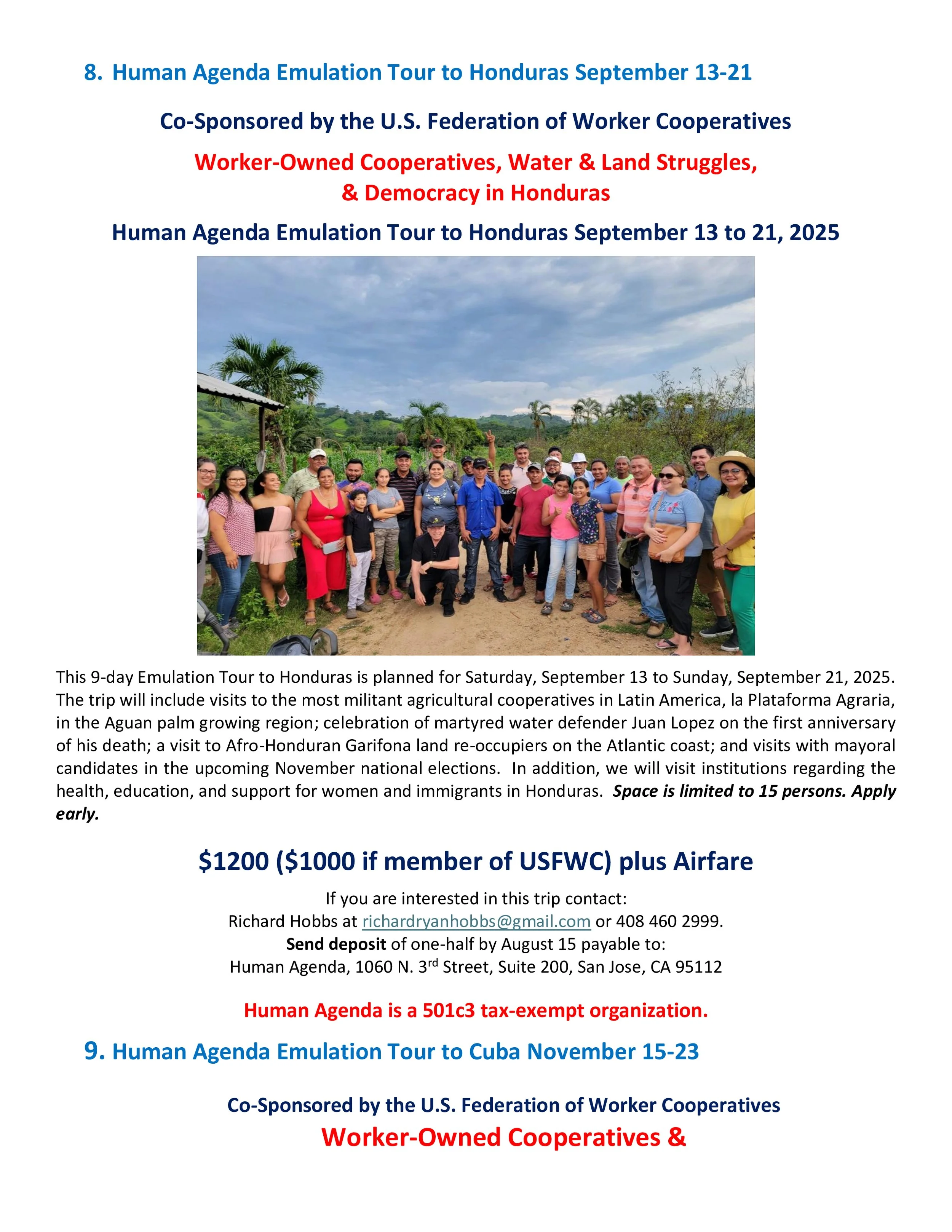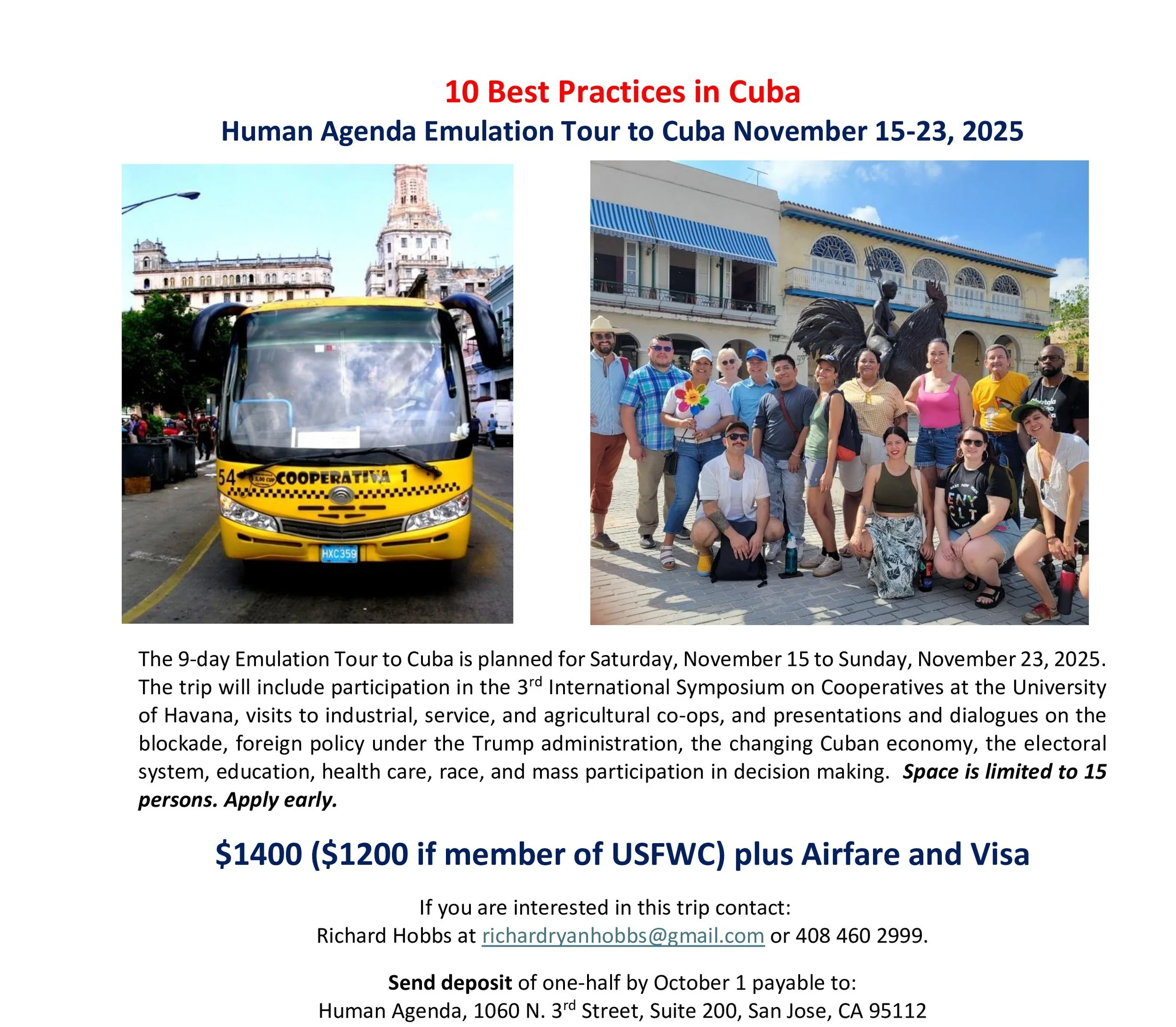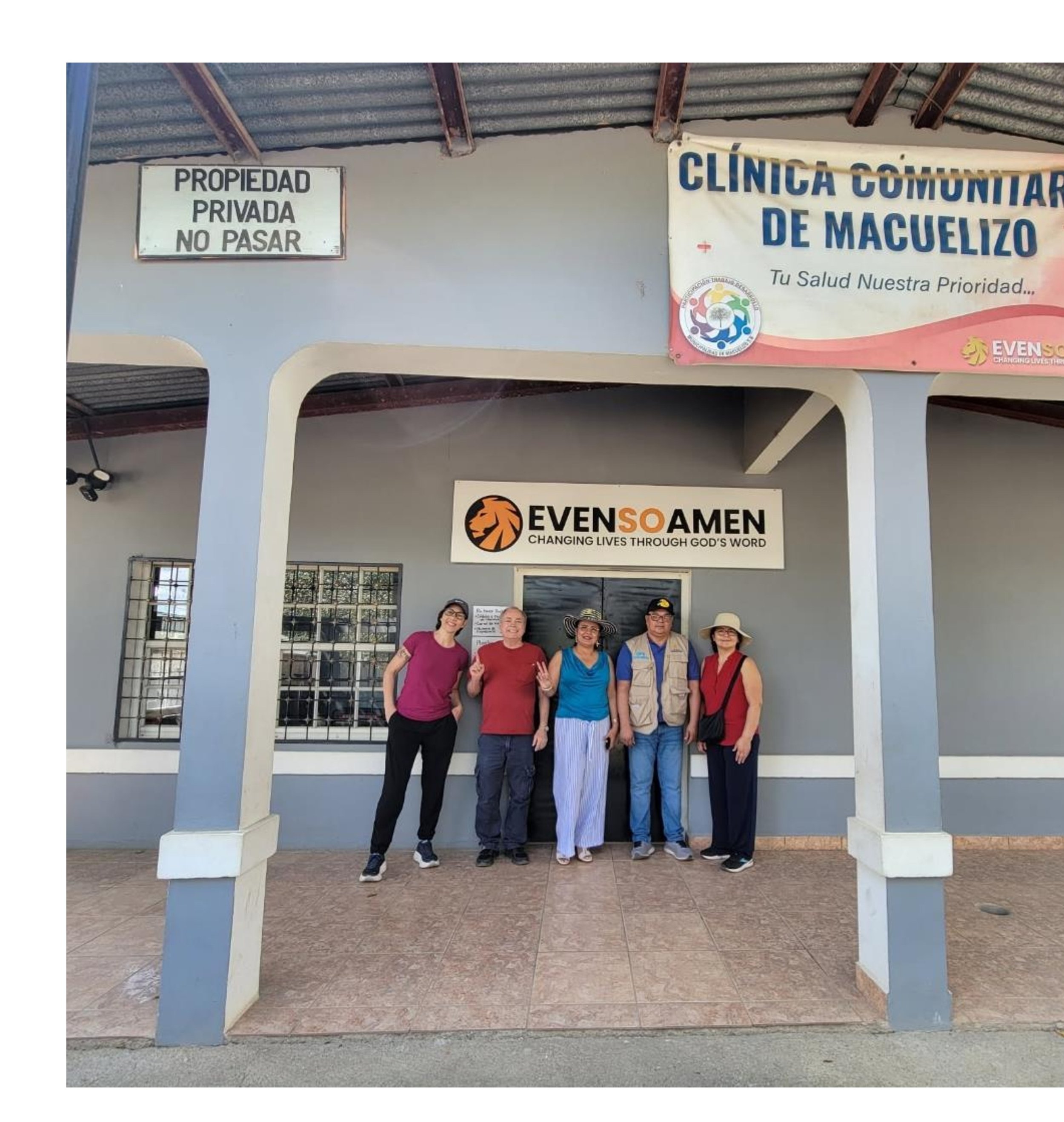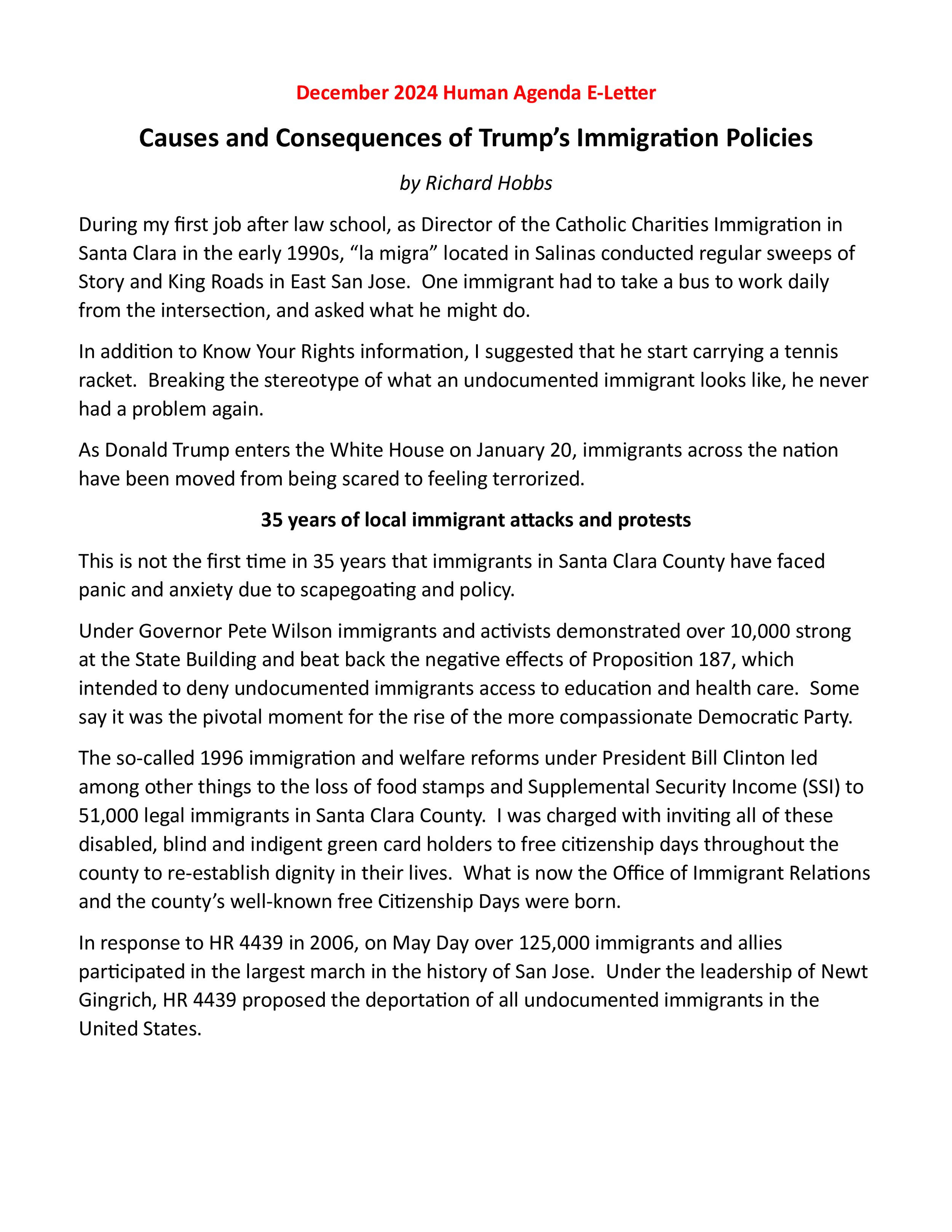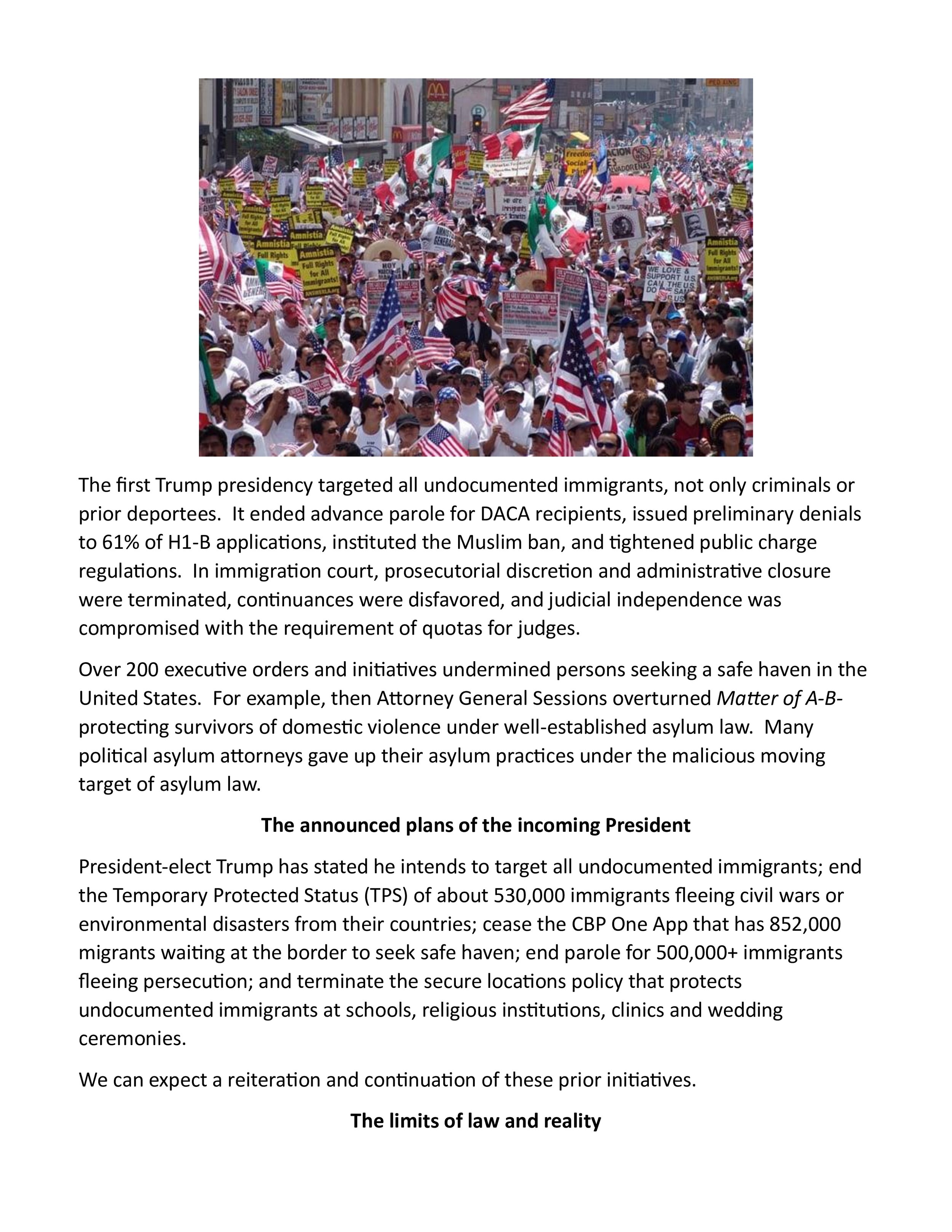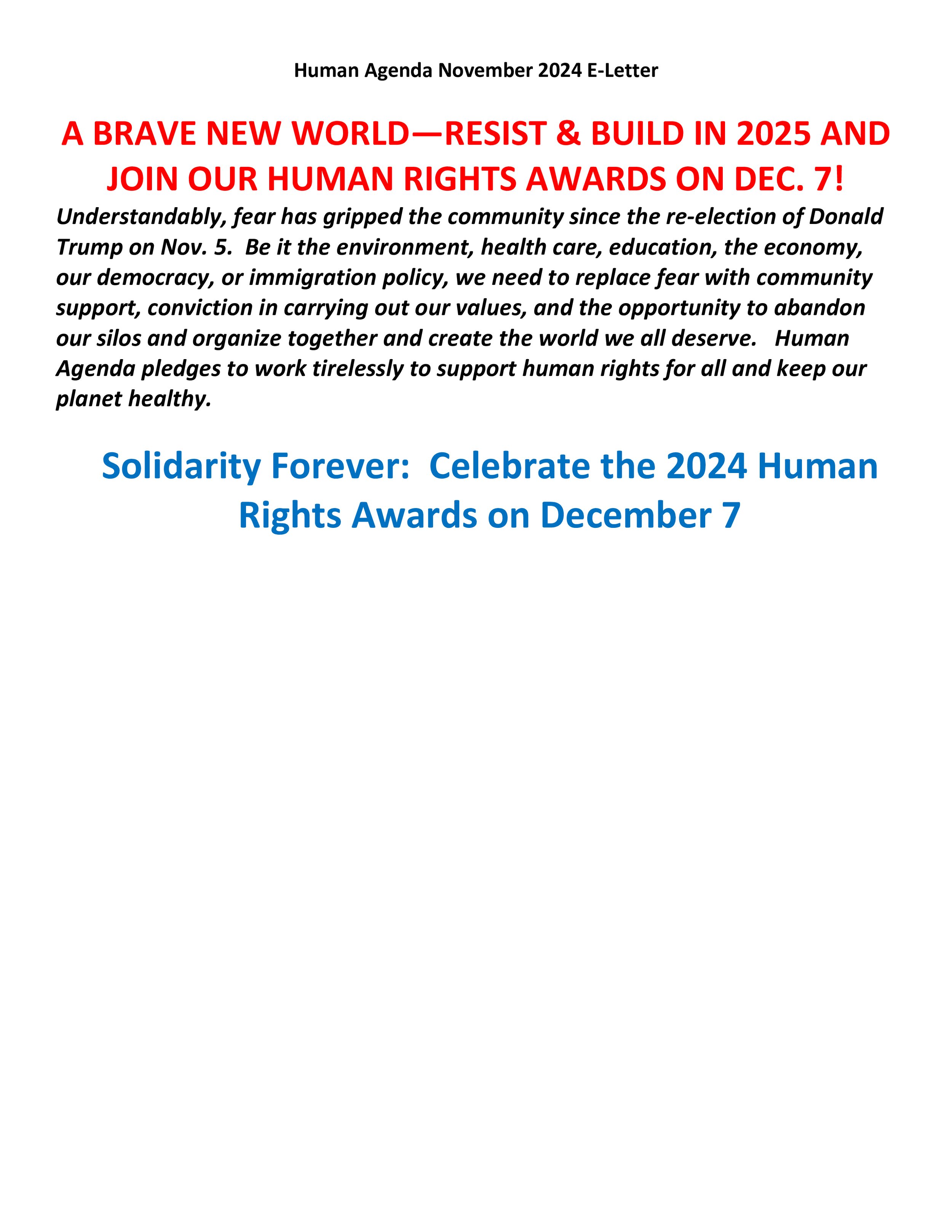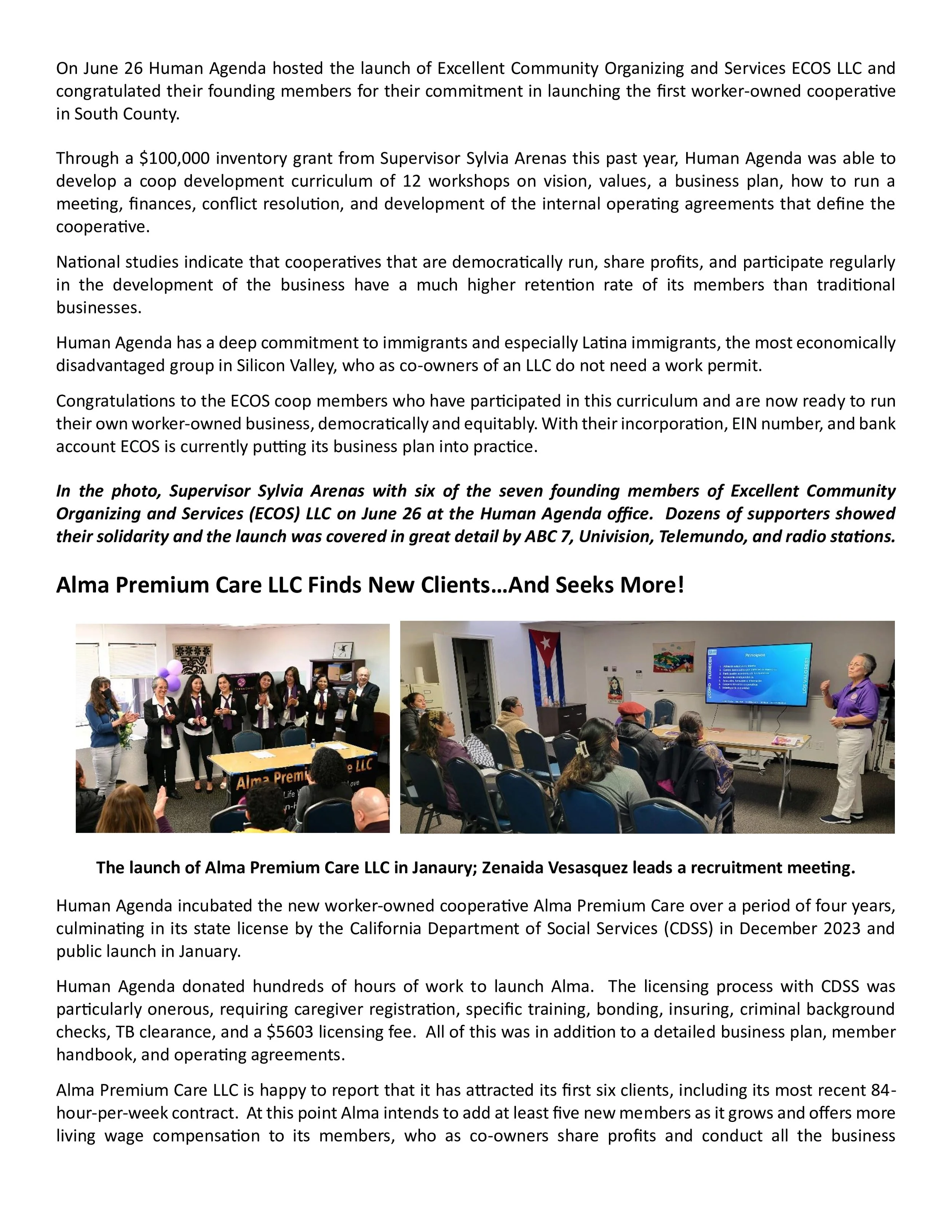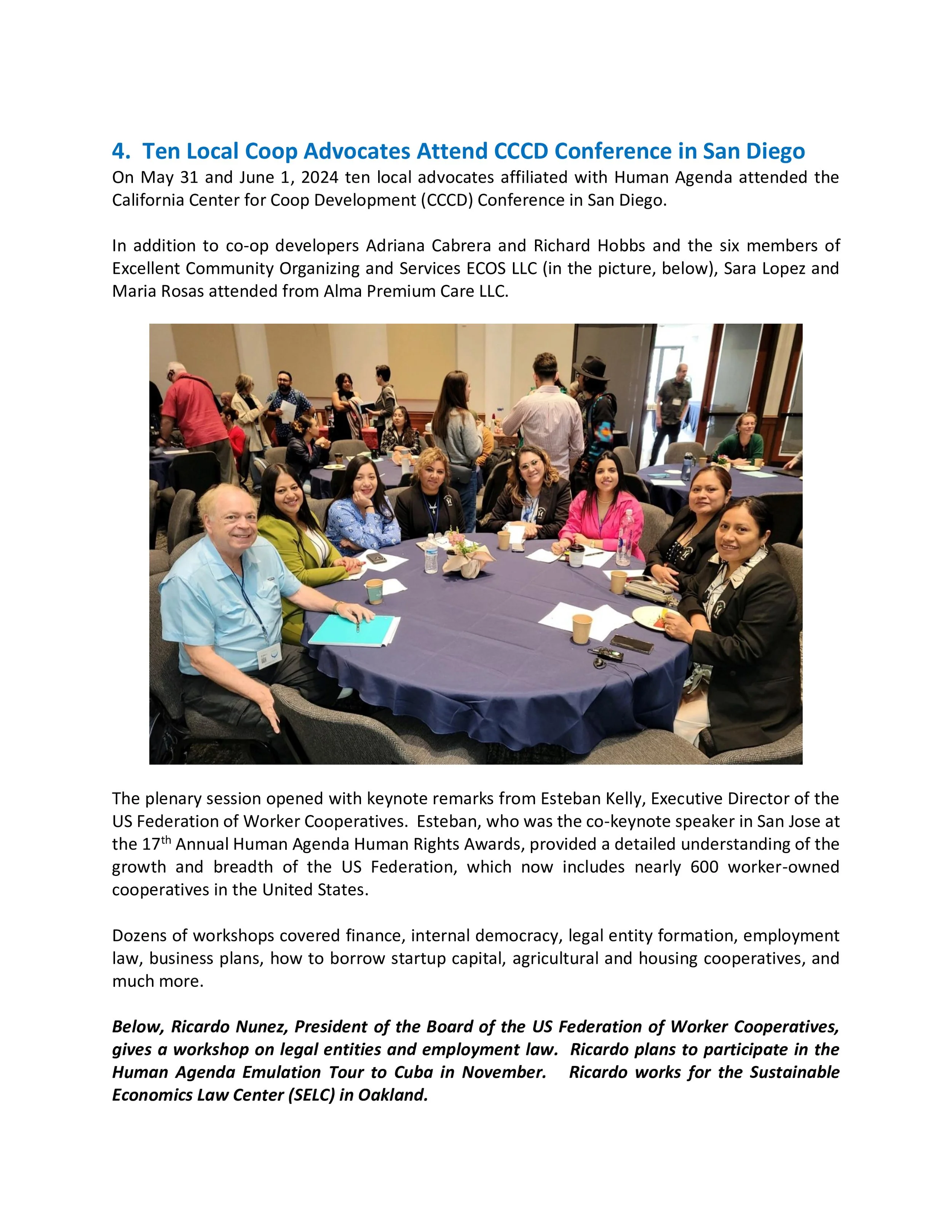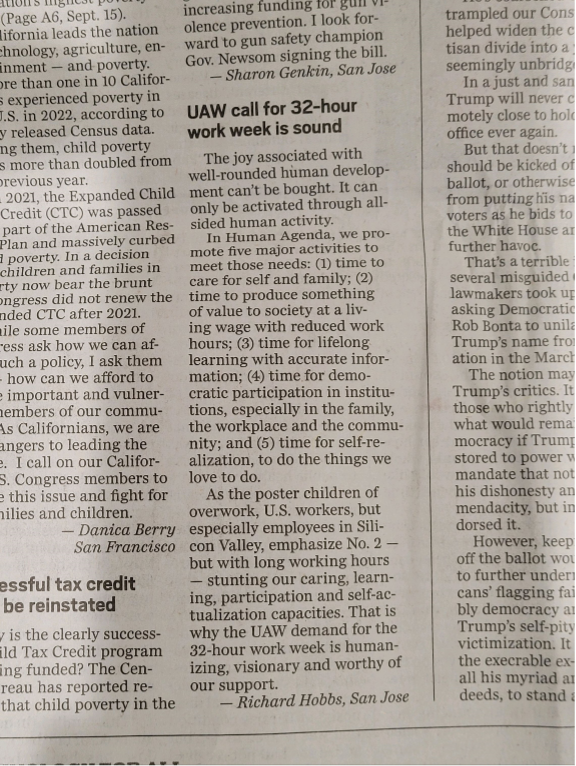5. Sixth Annual Break the Mold Conference at San Jose City Council a Success
The 6th Annual Break the Mold Conference of Human Agenda was a huge success. Held on Saturday, November 4 at San Jose City Council, the event was co-sponsored by the SJCC Associated Student Body, Reilient Foodsheds, the SJCC Ethnic Studies Department, Destination:Home, the South Bay Progressive Alliance, the NAACP San Jose Branch, Sacred Heart Community Service, the Human Rights Institute at SJSU, Raising the Roof, the San Jose Peace and Justice Center, Amigos de Guadalupe, and other groups. Richard Hobbs, Executive Director of Human Agenda, started out the presentations with 10 concepts related to resisting our current economic system and building alternatives to really meet human needs.
Keynote Speaker Alex Lee argued for housing as a human right, explaining his bill for social housing and efforts for rental relief at the state level. He showed that social housing is possible with financing, public development expertise, resident input, land banking, and the philosophy of housing as a human right, providing Singapore and Vienna best practices.
Sandy Perry, President of the Santa Clara County Affordable Housing Network, emphasized the need for a popular movement. Without a strong mass movement, nothing will change the broken housing system. Unaffordable housing is the reason for homelessness, he argued, and if developers can’t “pencil out” a good profit, they won’t build housing. “Organize, organize, organize.”
Oscar Quiroz Medrano from Somos Mayfair presented limited equity housing cooperatives as a viable long-term solution to affordability. He presented the Tenant Preference Policy proposal of Somos Mayfair, to prevent the displacement of lower-income renters. (The Board of Directors of Human Agenda subsequently voted unanimously to endorse this proposal.)
David Low from Destination Home argued that the reasons for the 10,000 homeless in Santa Clara County are the lack of affordable housing, rising income inequality, underinvestment in programs serving the most vulnerable residents, and systemic and structural racism. He concluded that homelessness cannot be solved in this economic system but that there have been successes in permanent supportive housing, homelessness prevention, and rapid rehousing.
Student Vitumbiko Kambilonje told the story of his brush with homelessness, and the vulnerability of college students. Approximately 20% of community college students statewide experience homelessness at some point during the academic year.
Peter Ruddock of Resilient Foodsheds argued that we can no longer think reductively to solve the food crisis; we have to think holistically. The 800,000,000 chronic food insecure in the world could easily be fed; thee is plenty of food grown every year but it is not distributed or accessible to poor people. The lack of a living wage or income is the real underlying problem: capitalist inequality. Malnutrition and being overweight are products in great part because of food deserts, food swamps, and food apartheid. Via Campesina from the Basque region of Spain points toward a solution: food sovereignty, or a holistic sustainable food eco-system.
Mireya Gomez-Contreras from Esperanza Community Farms in Salinas explained that “Organic is healthy for our bodies.” She said that capitalism breeds isolation, and that to break that isolation we need food hubs, farmers’ markets, community gardens, and farmer cooperatives. Esperanza Community Farms is a farmer cooperative with six farmers who grow over 20 vegetables, provide food to 175 CSA customers, and do outreach to schools to talk about regenerative agriculture. Esperanza also invoked the importance of individual responsibility: “As an immigrant woman of color and a single parent, we have a lot of work to do individually.”

